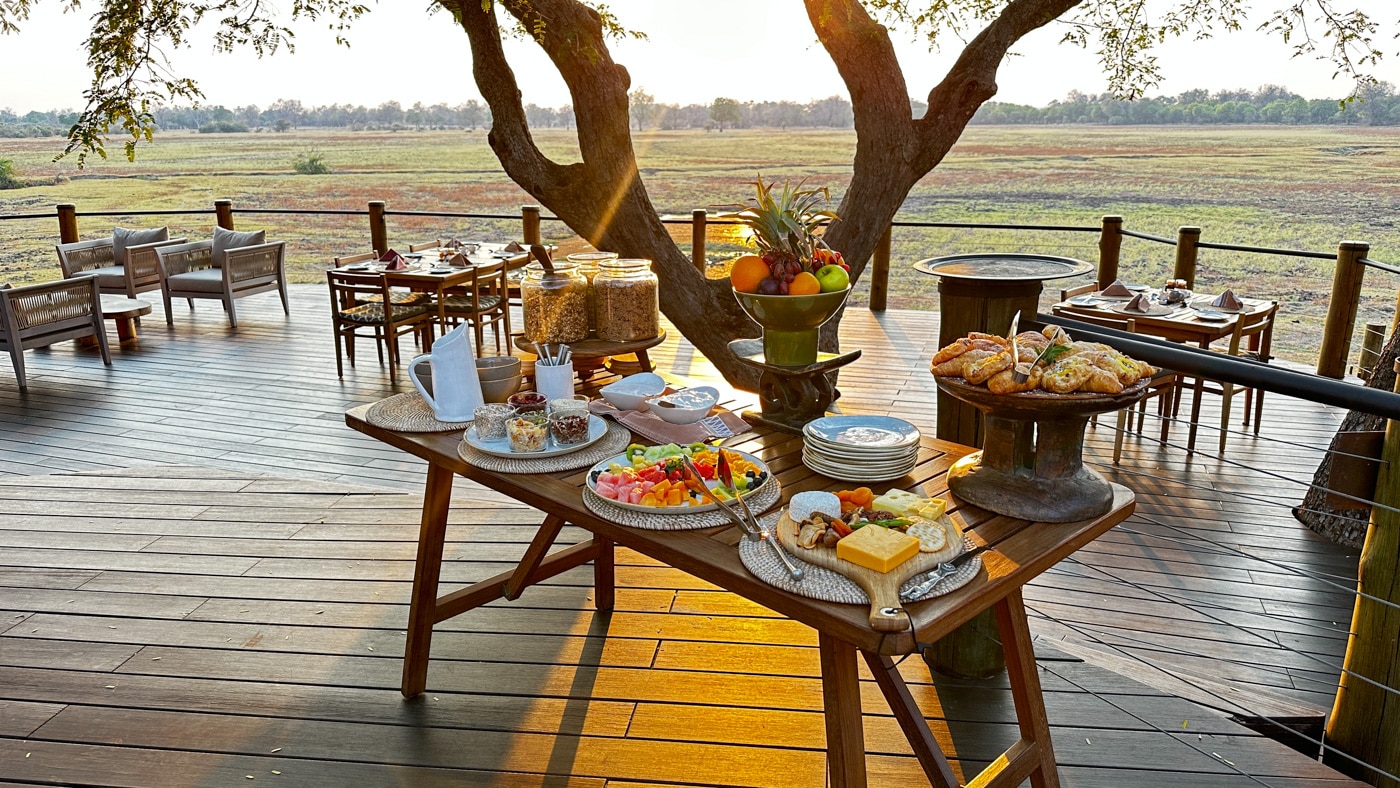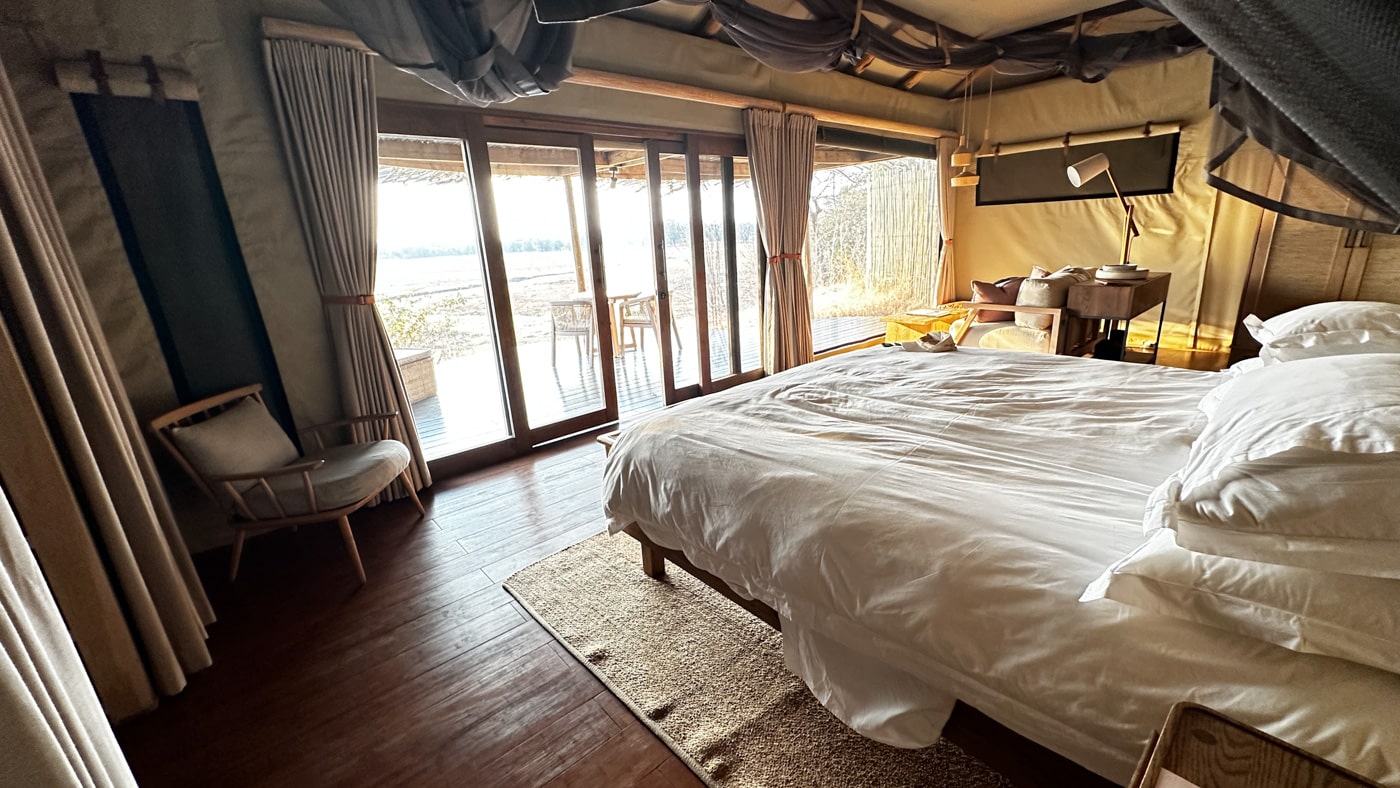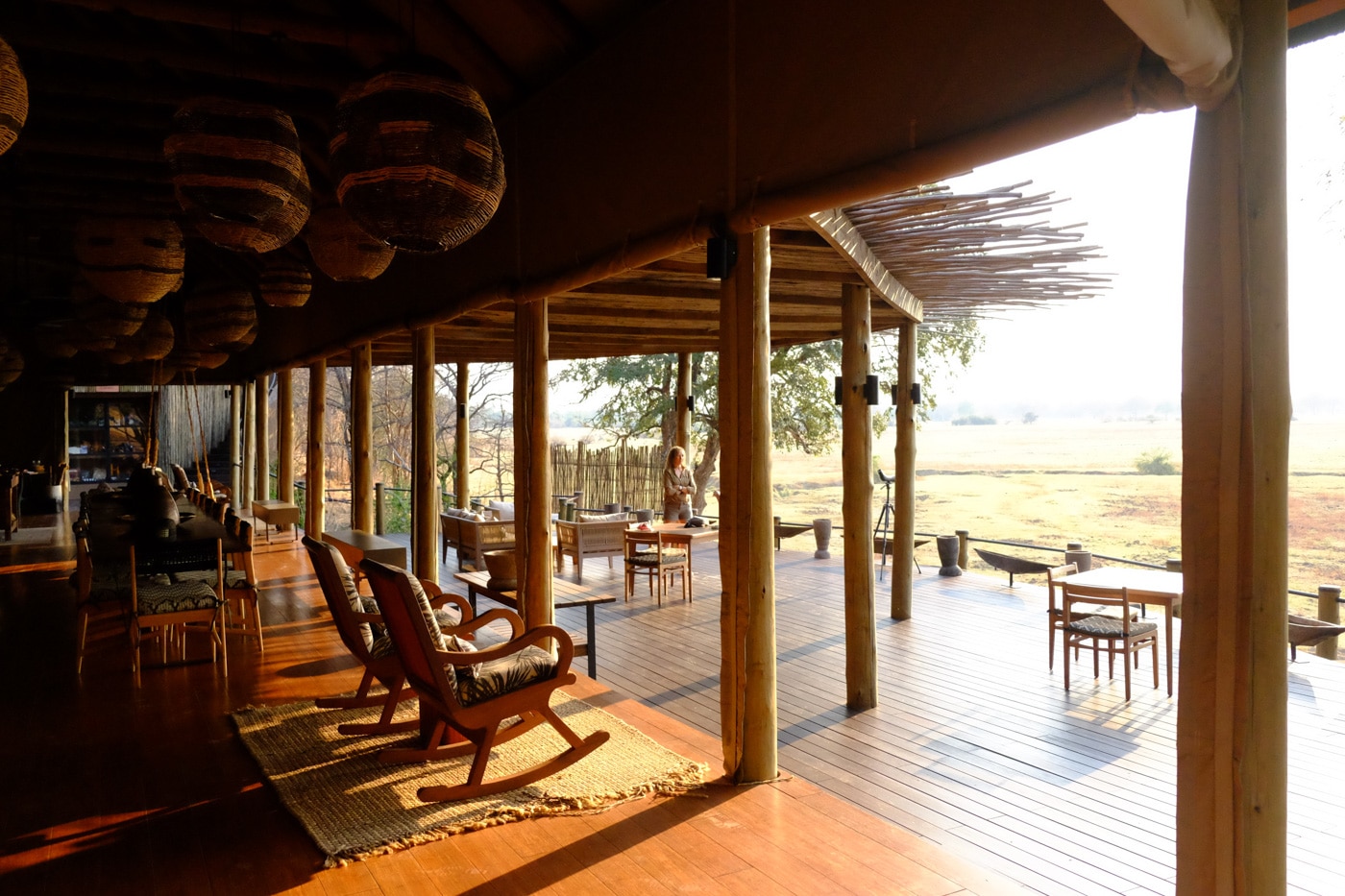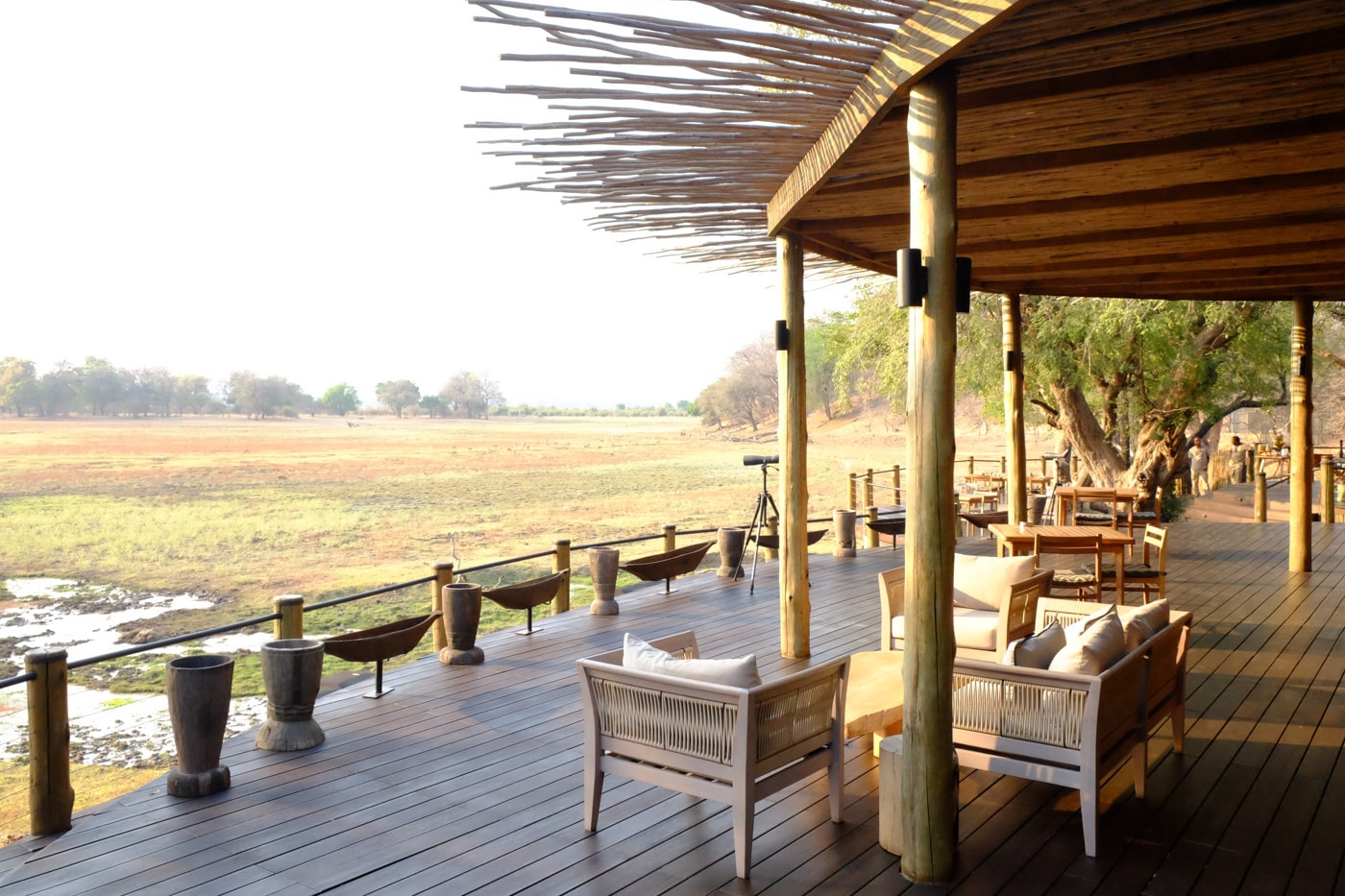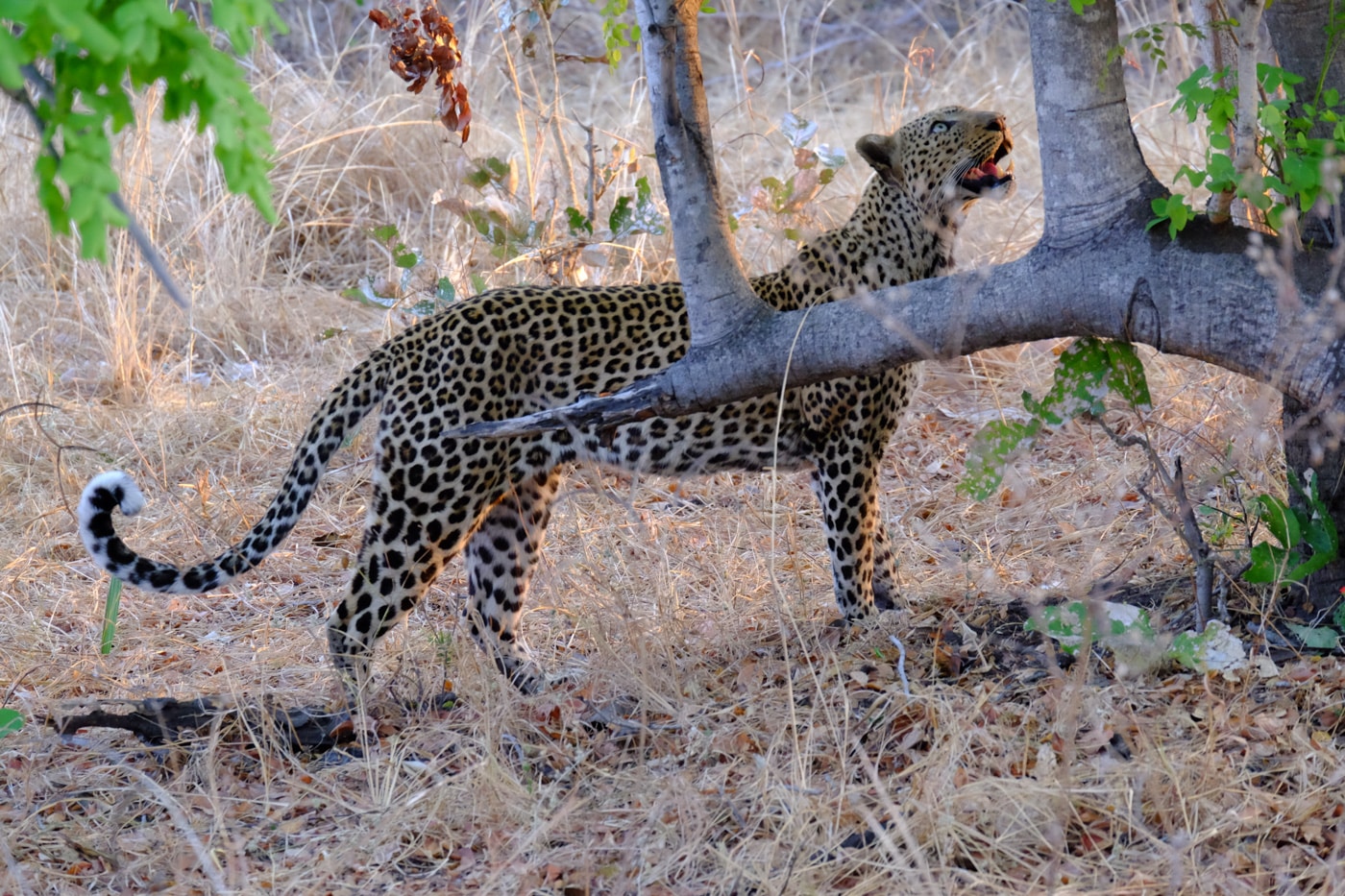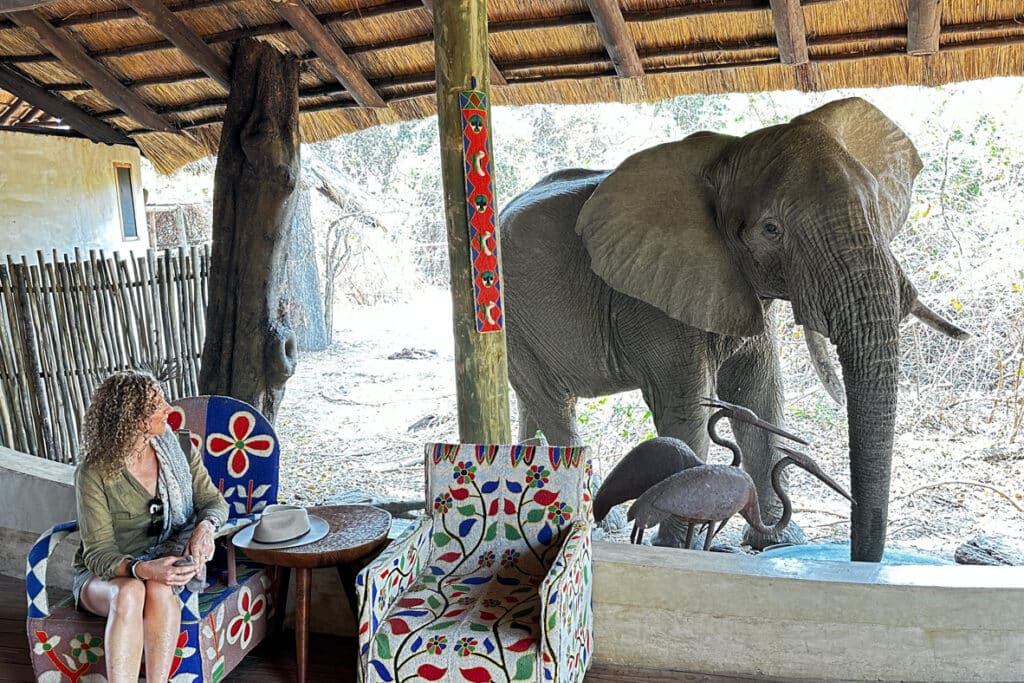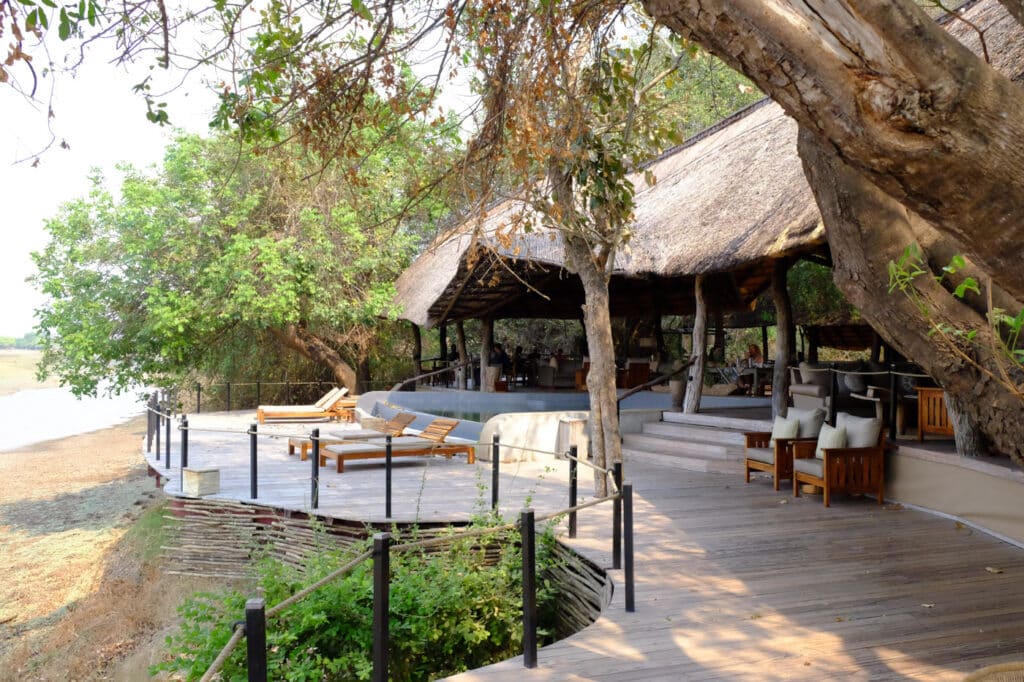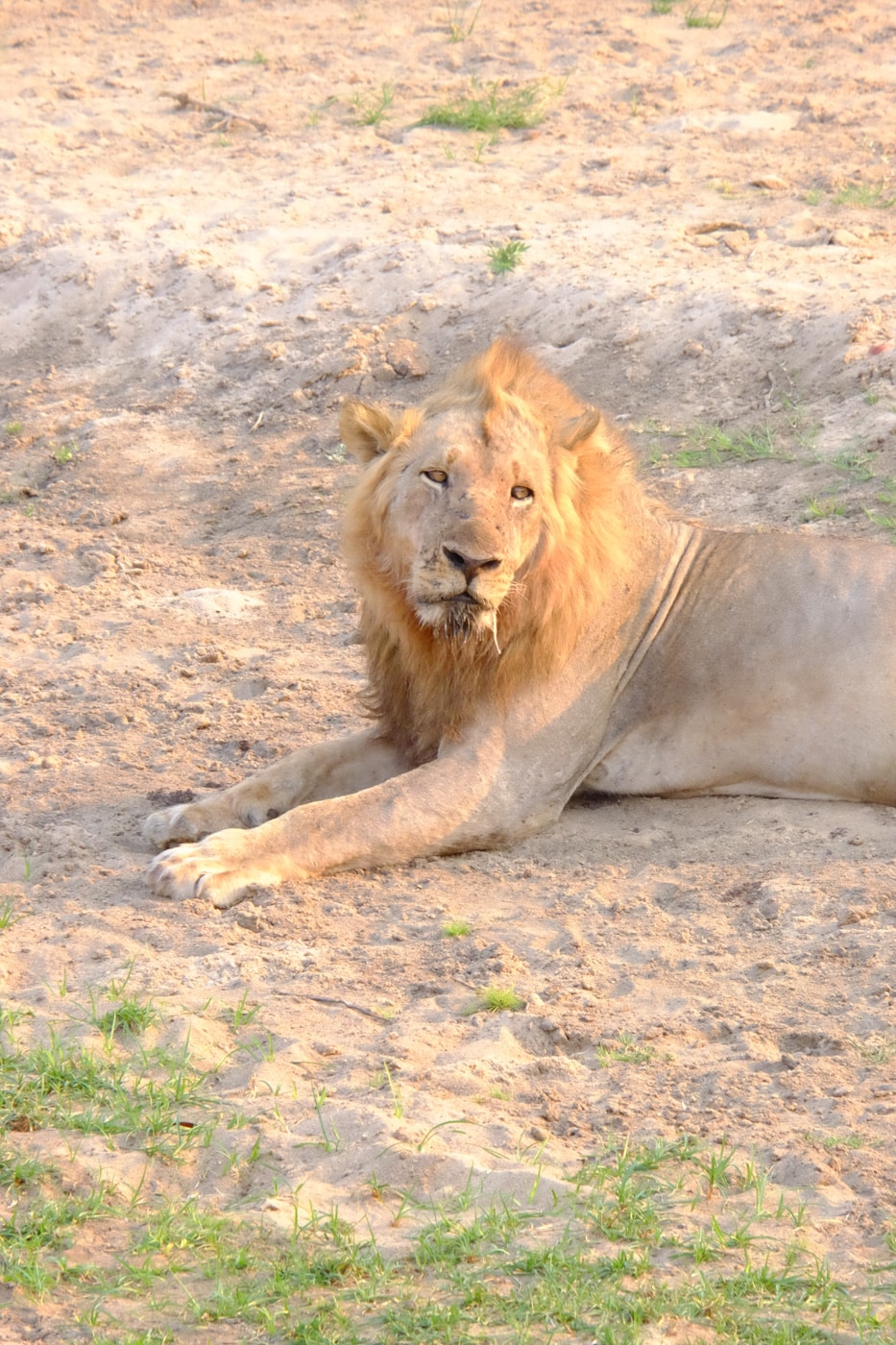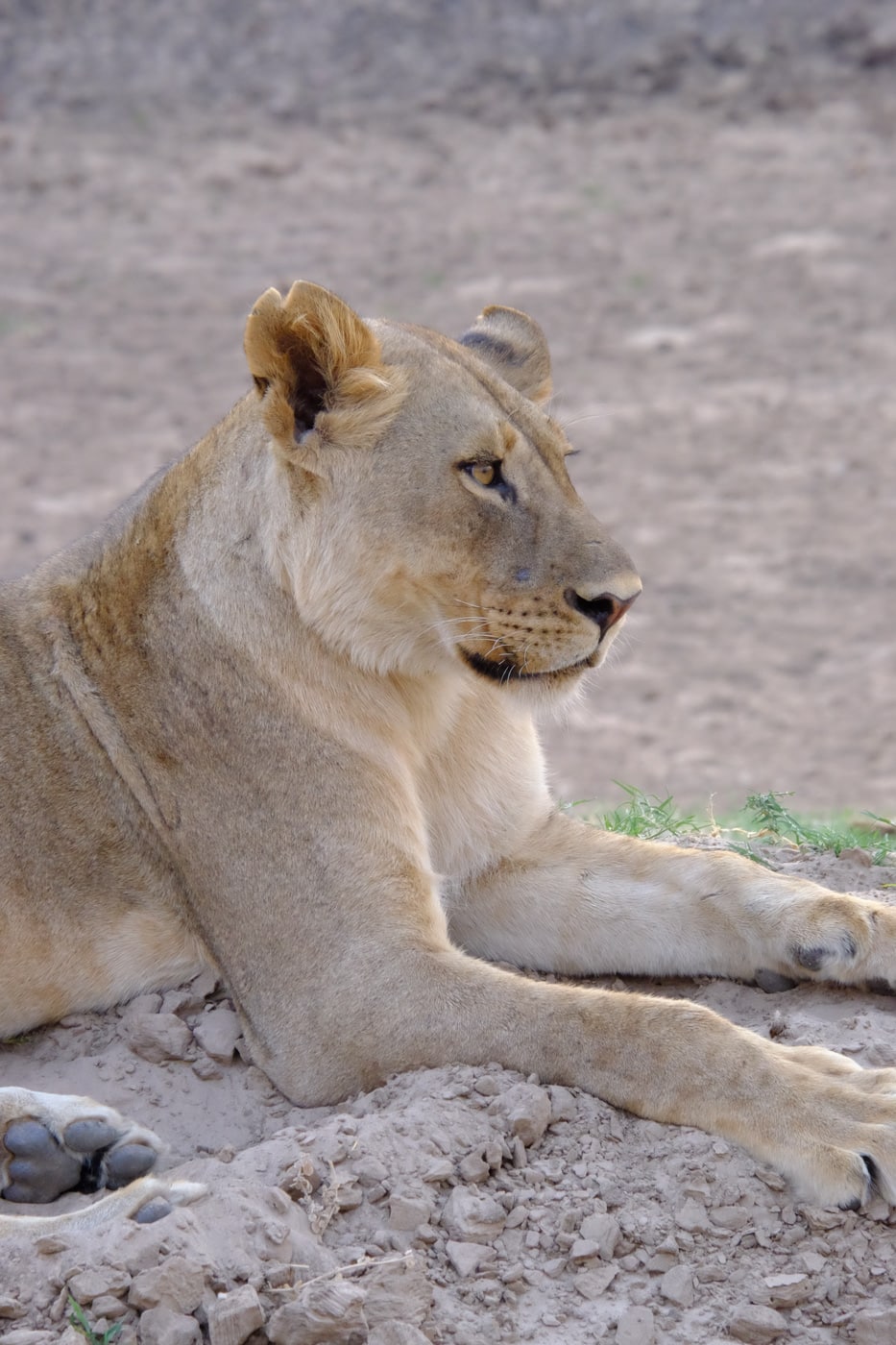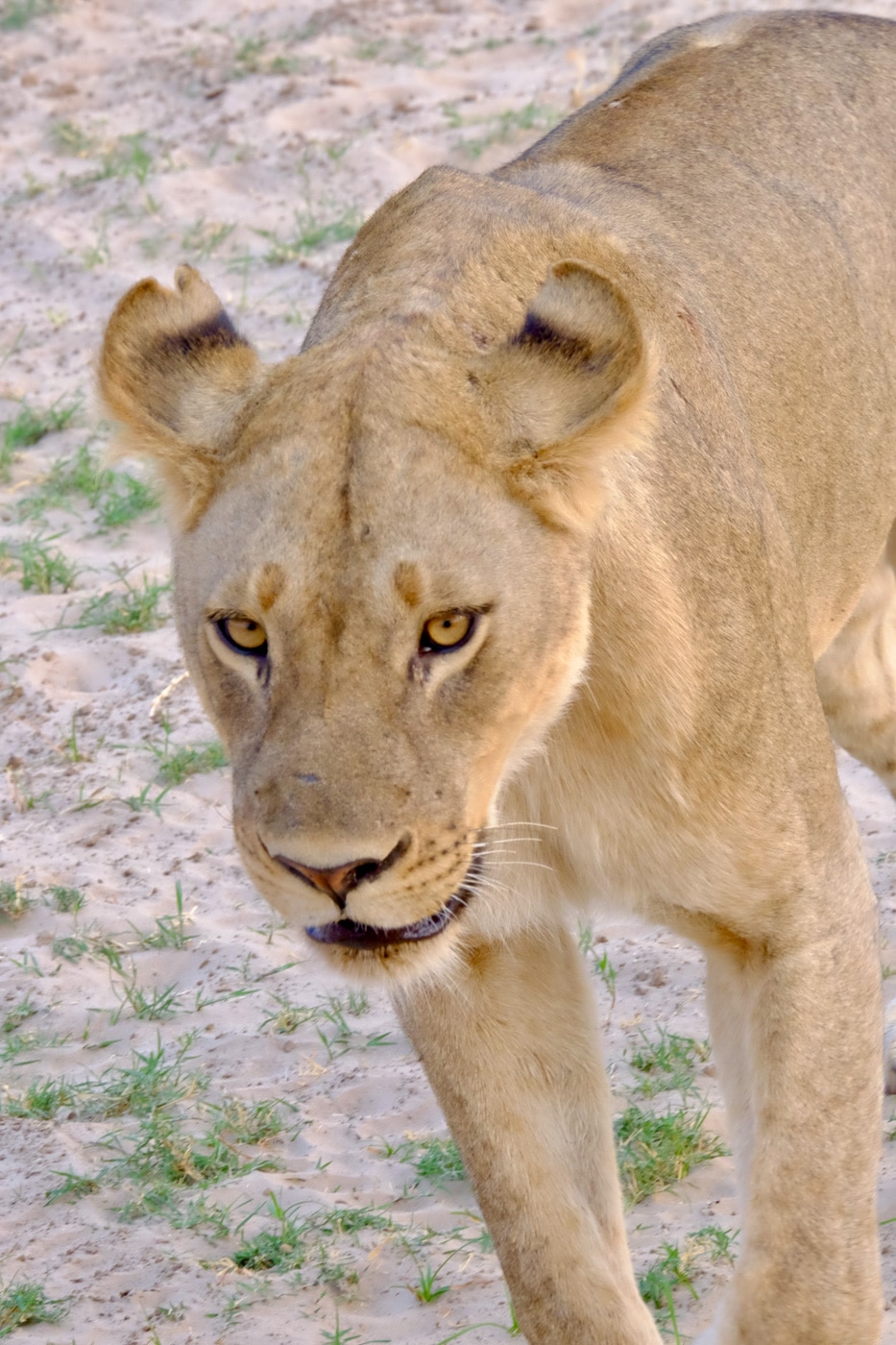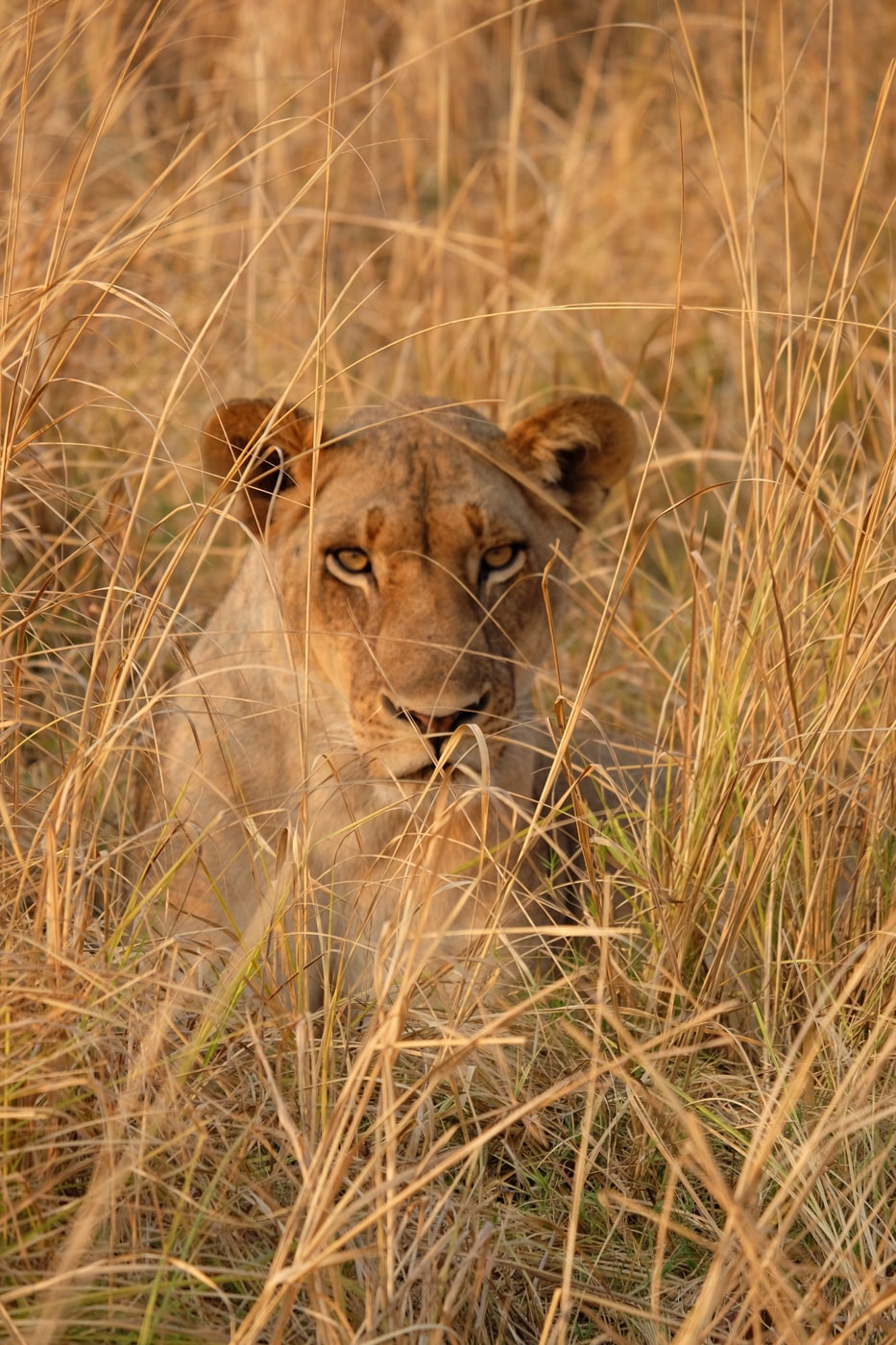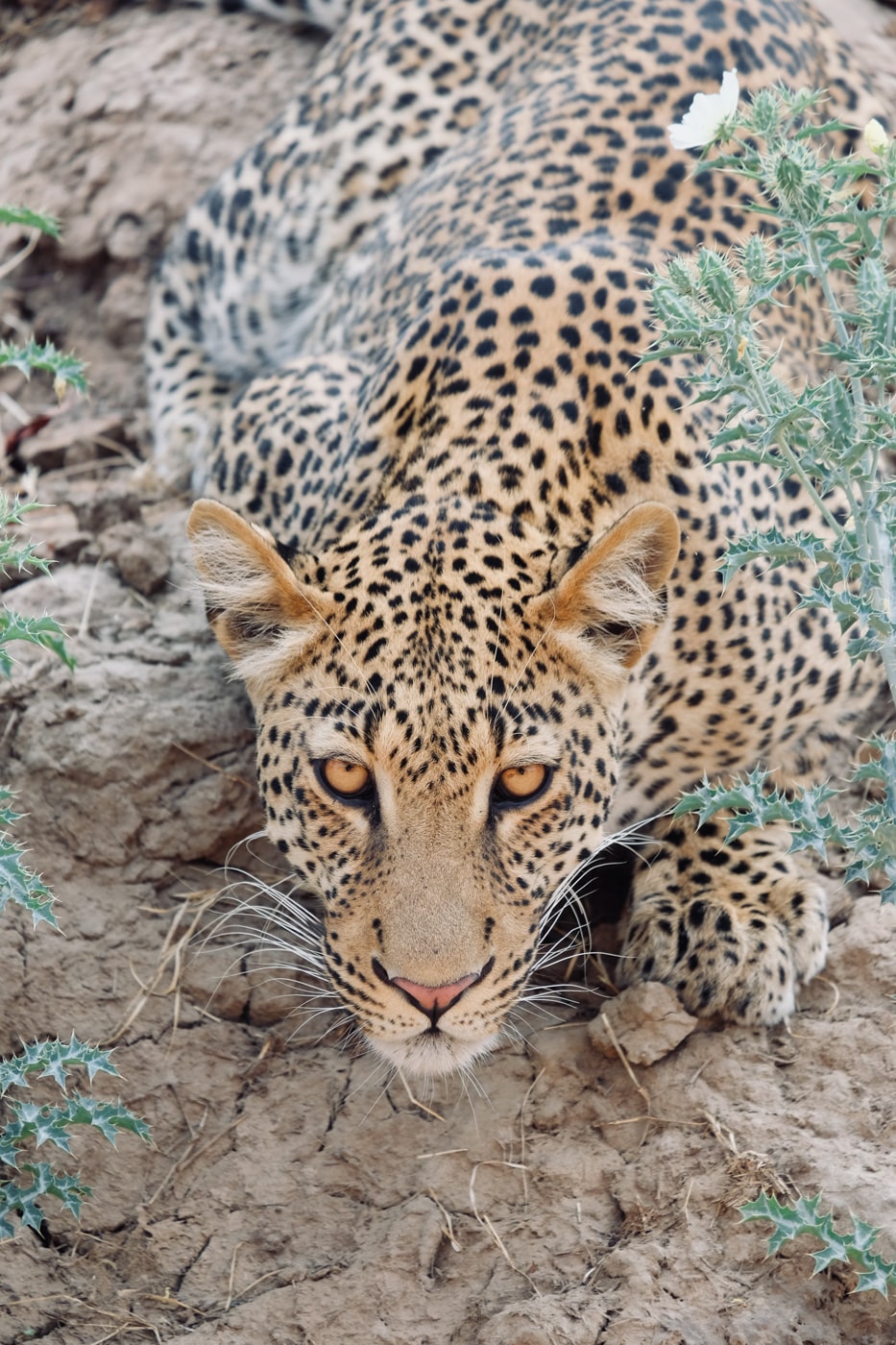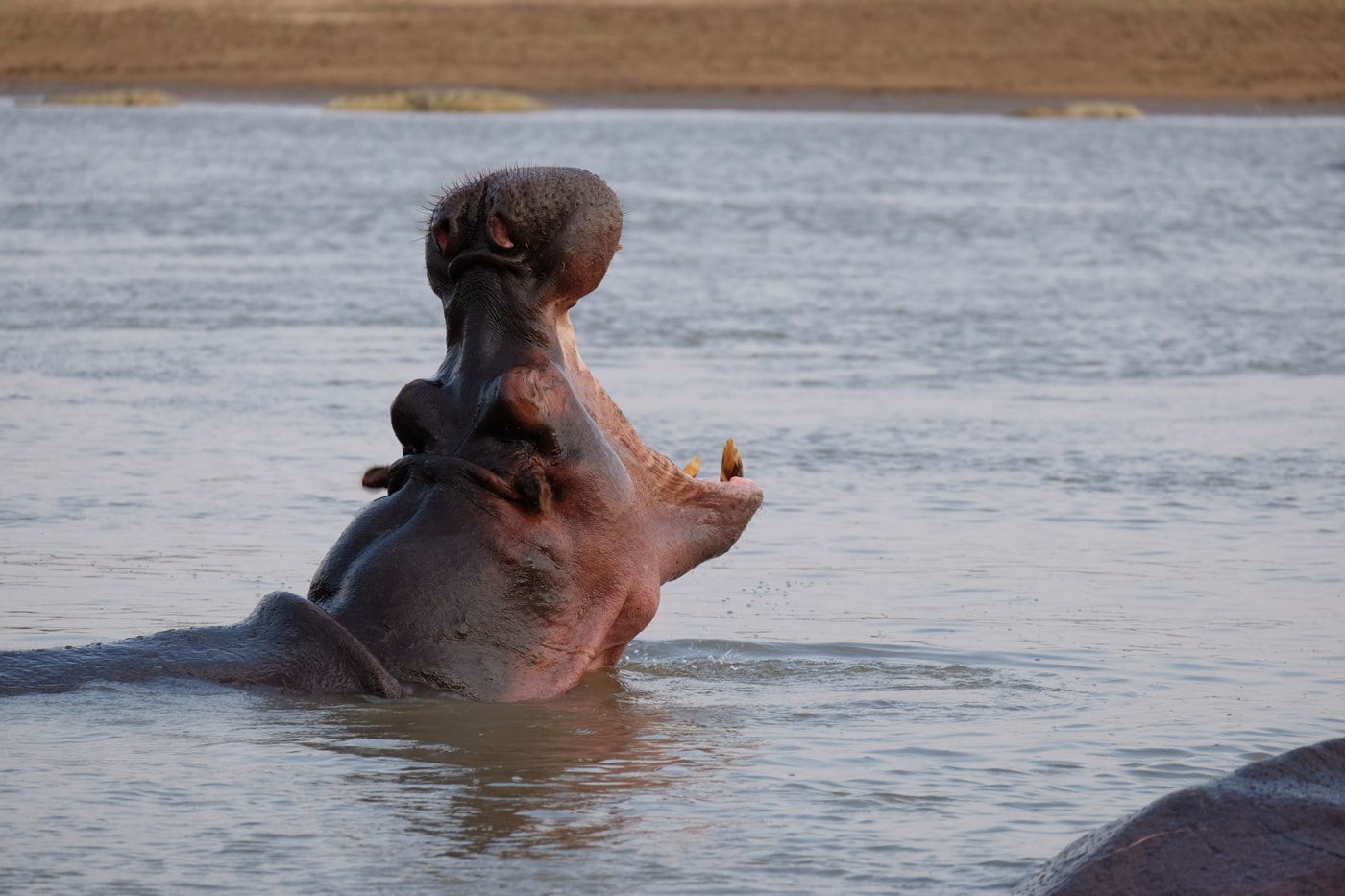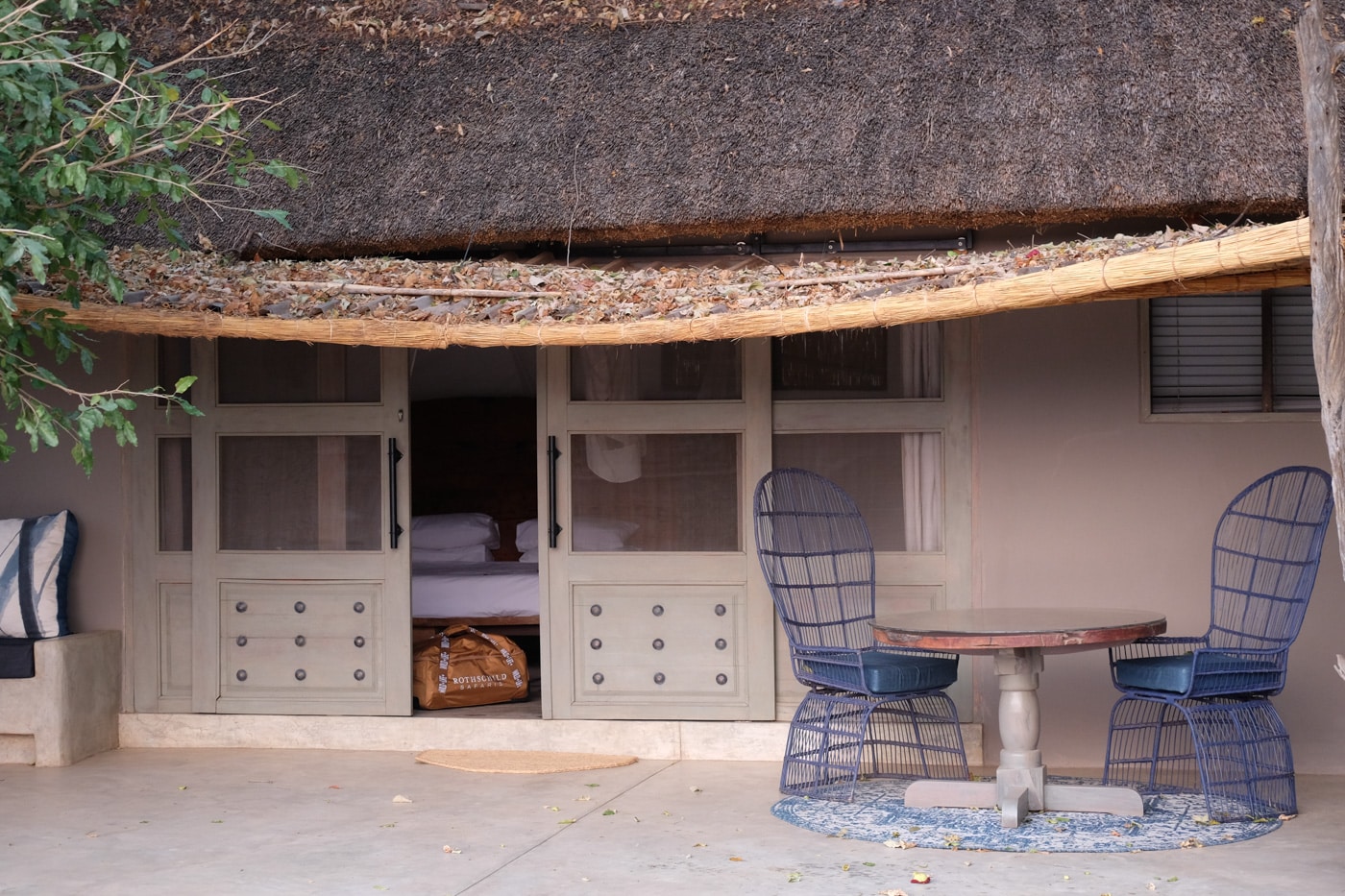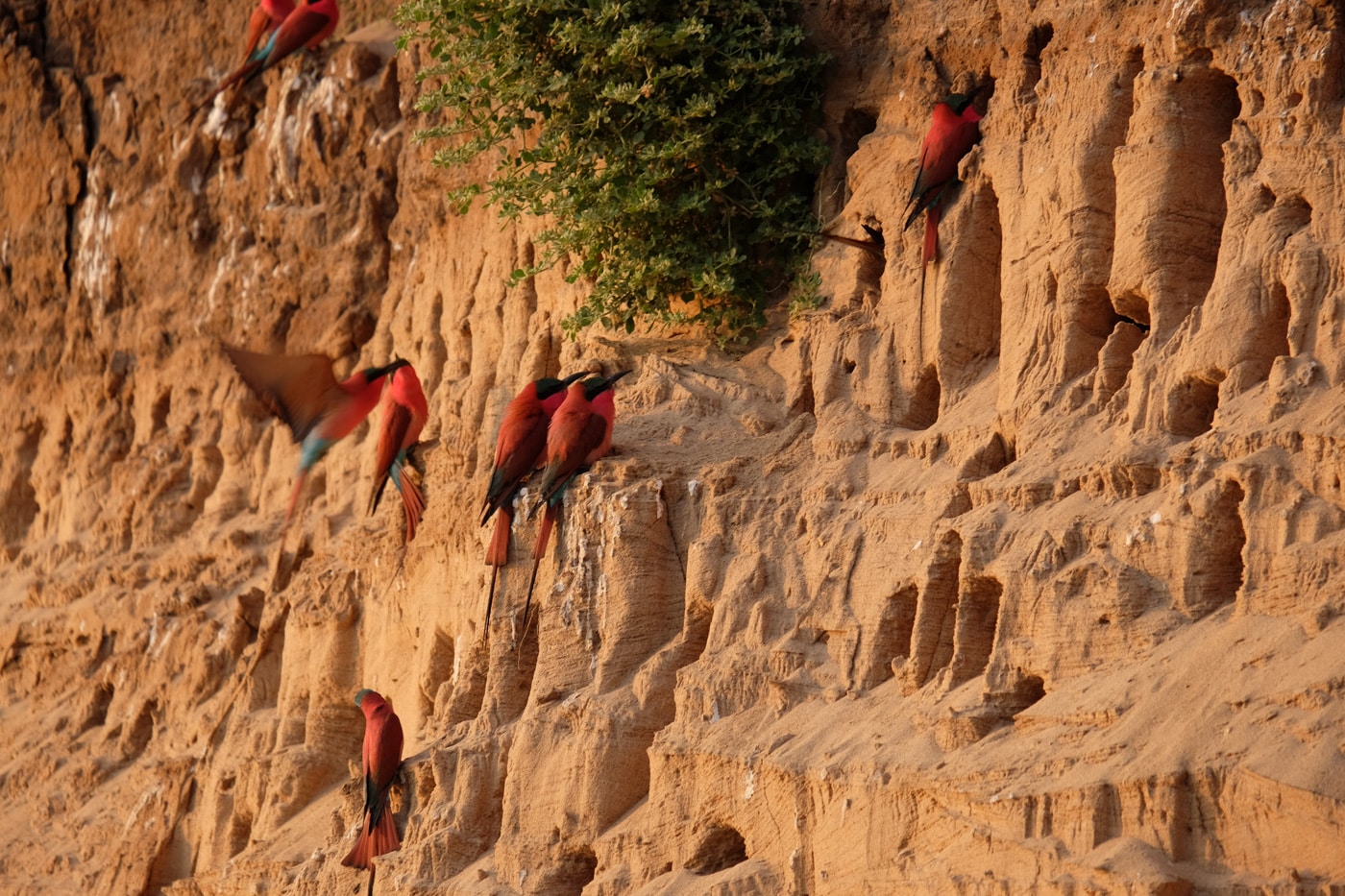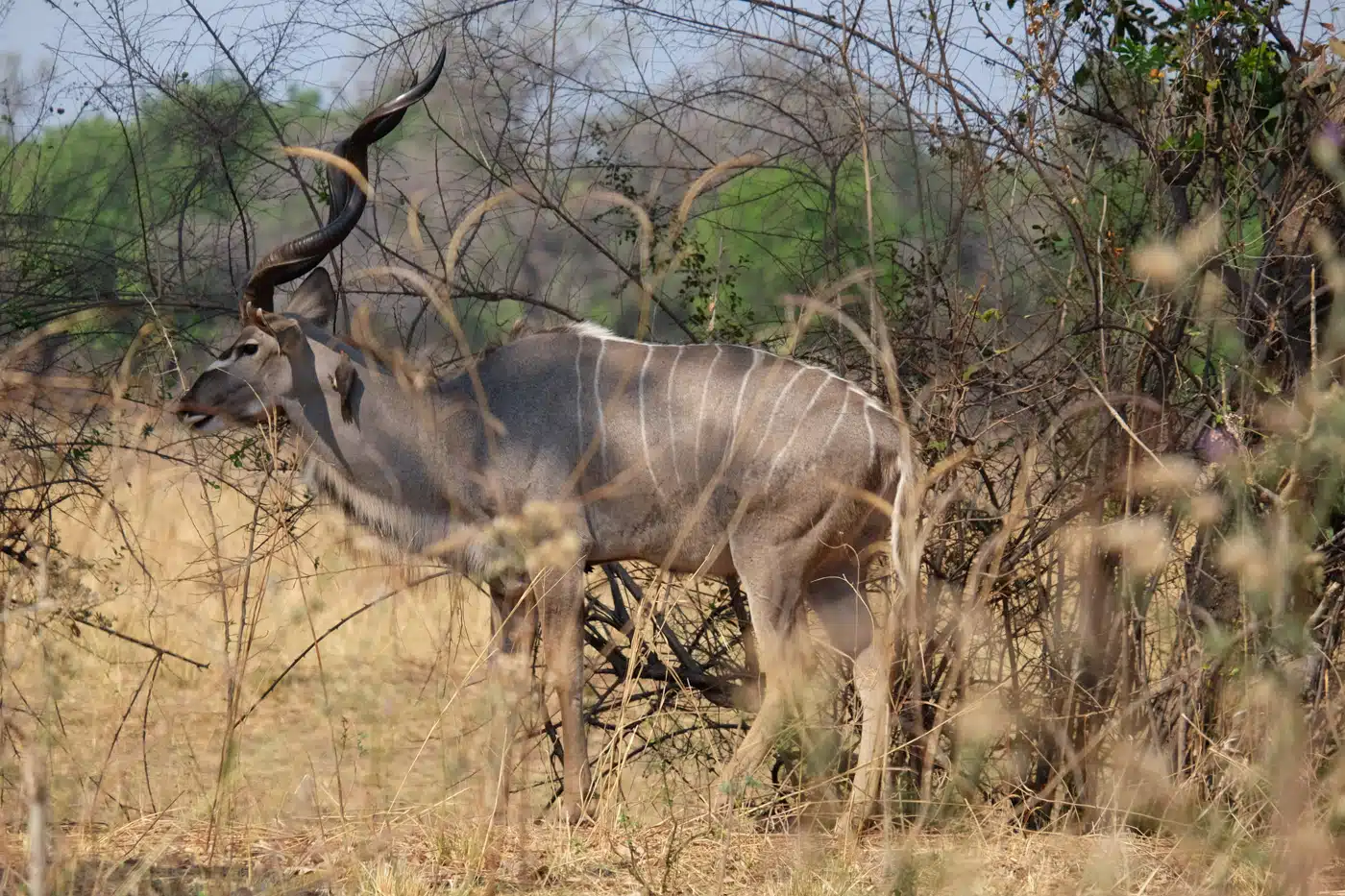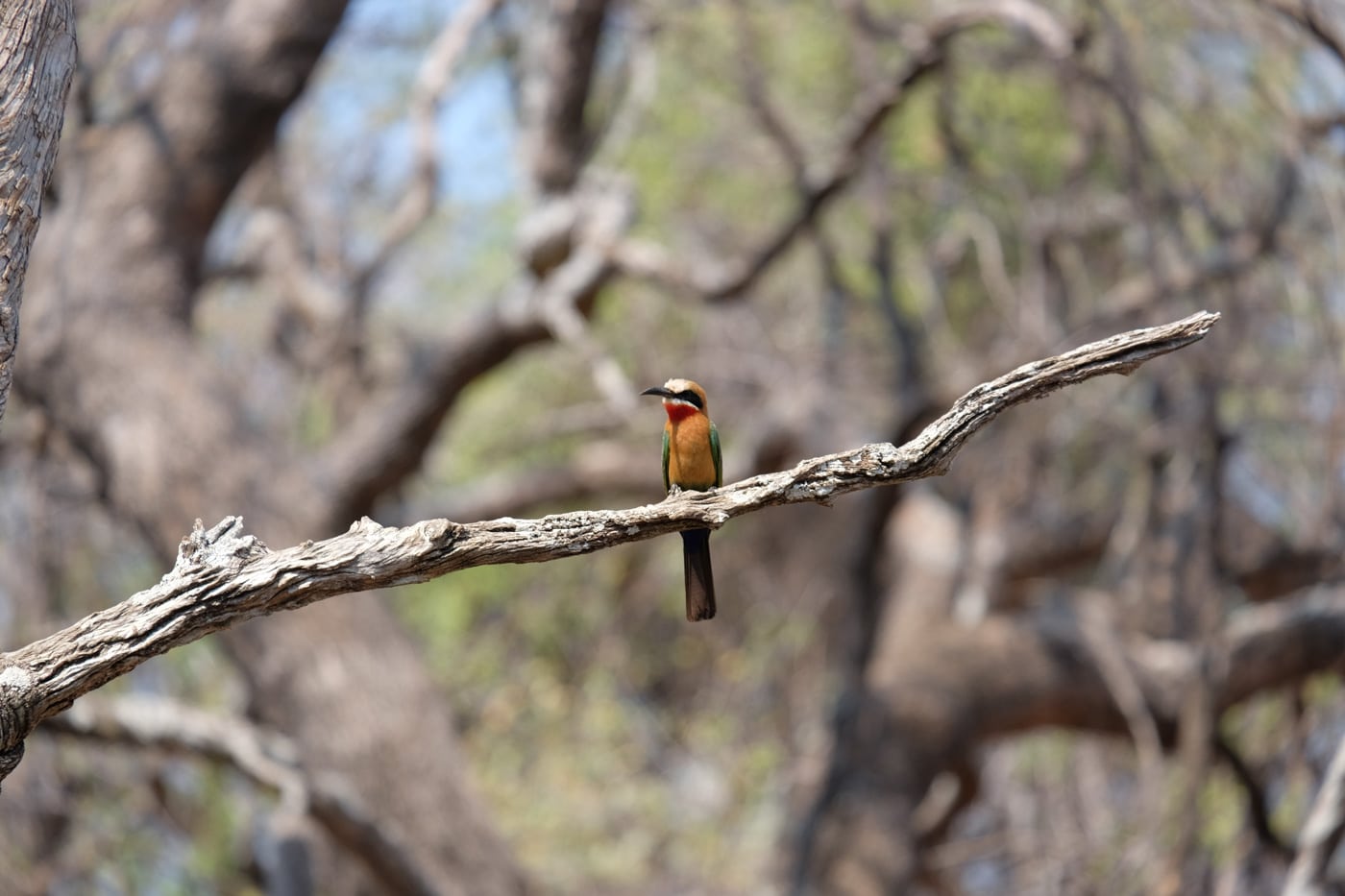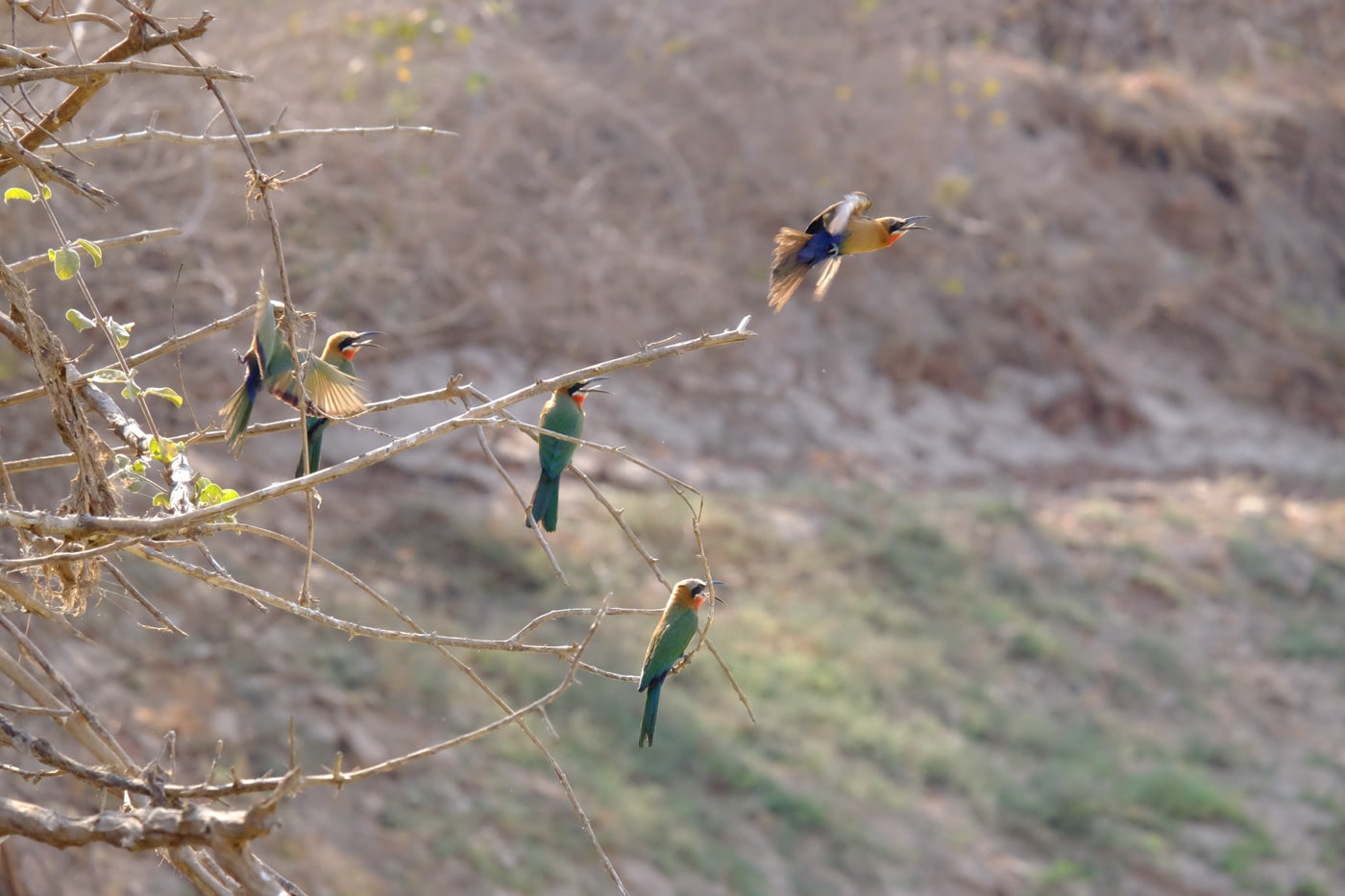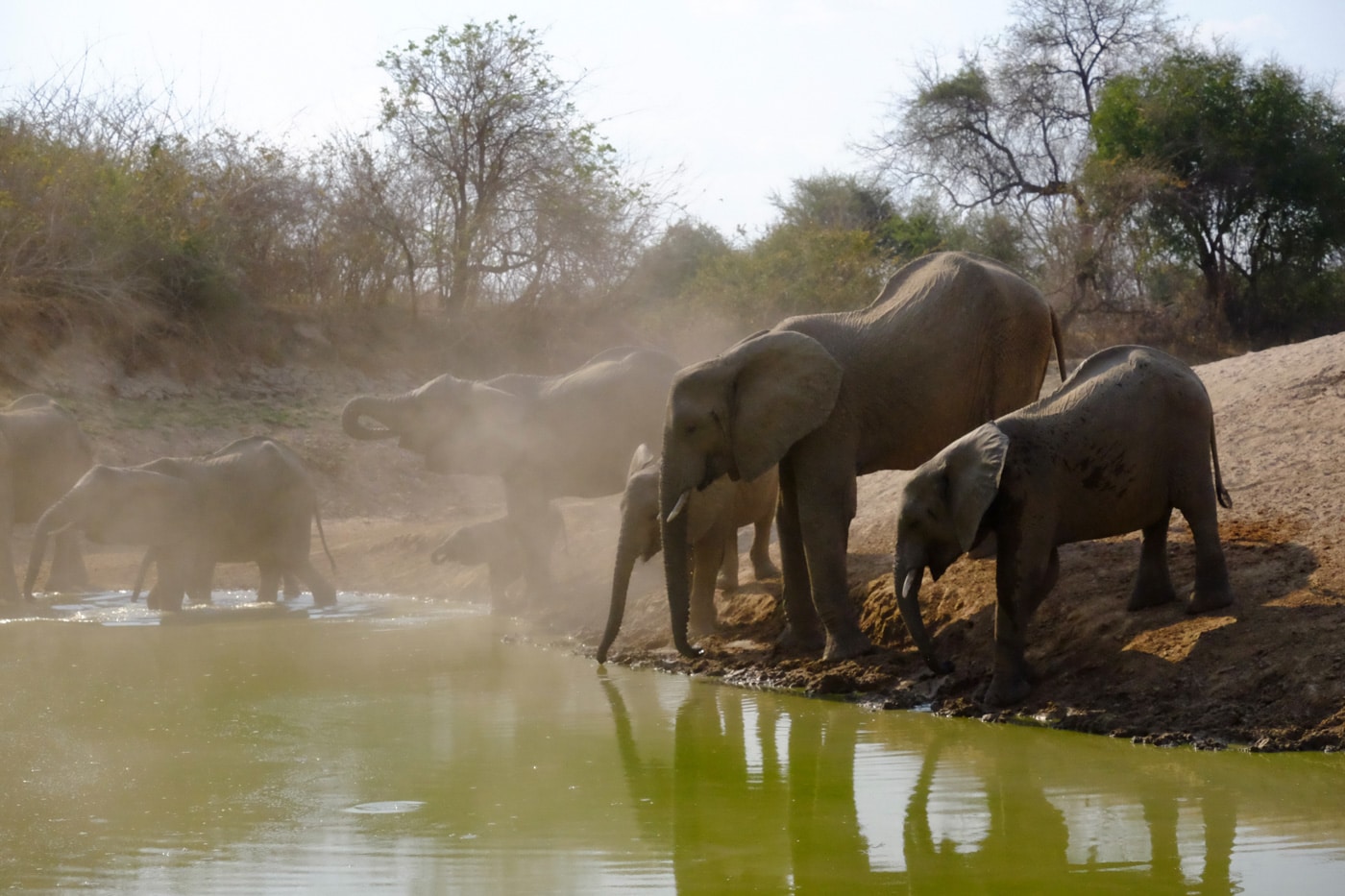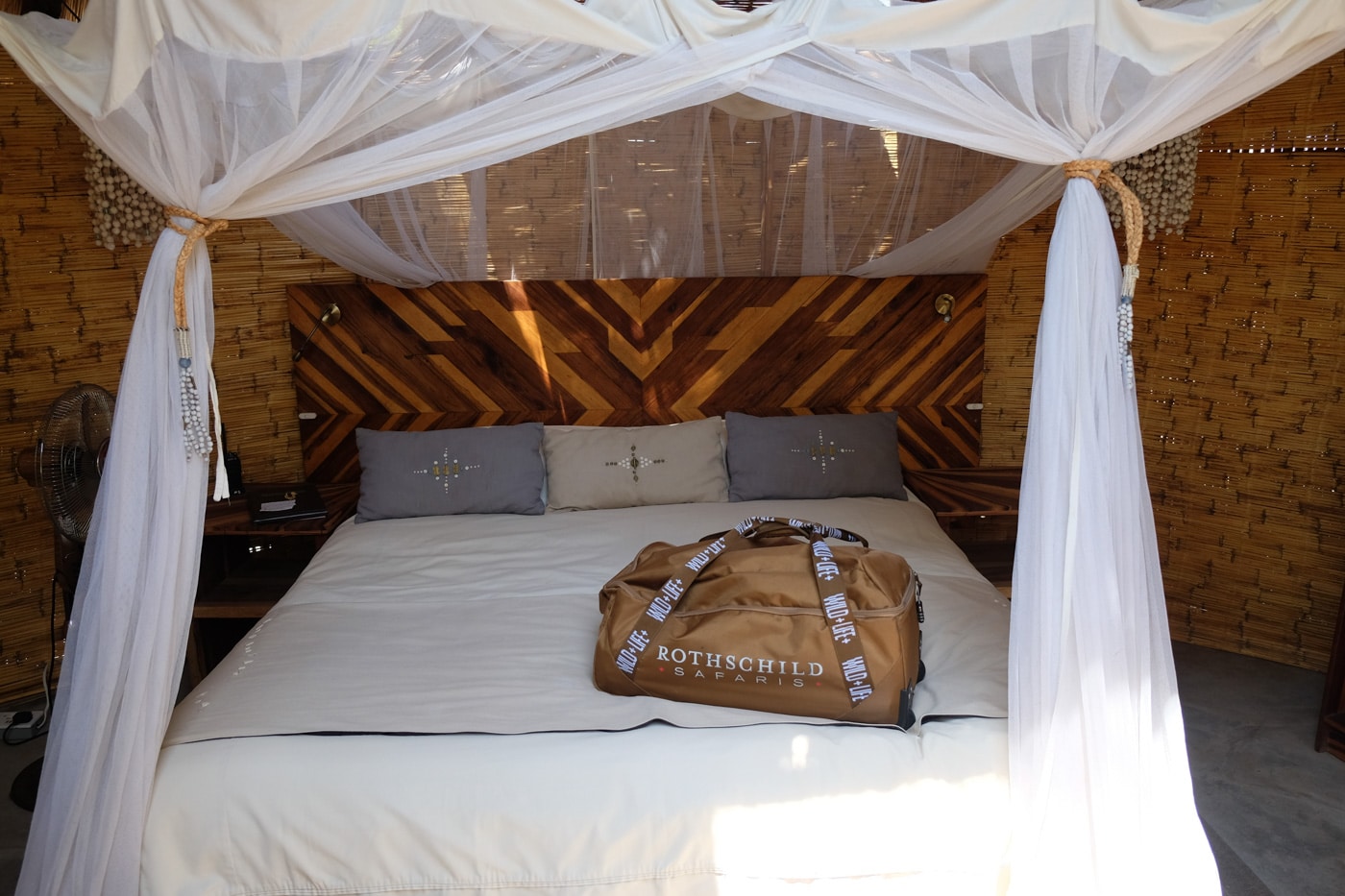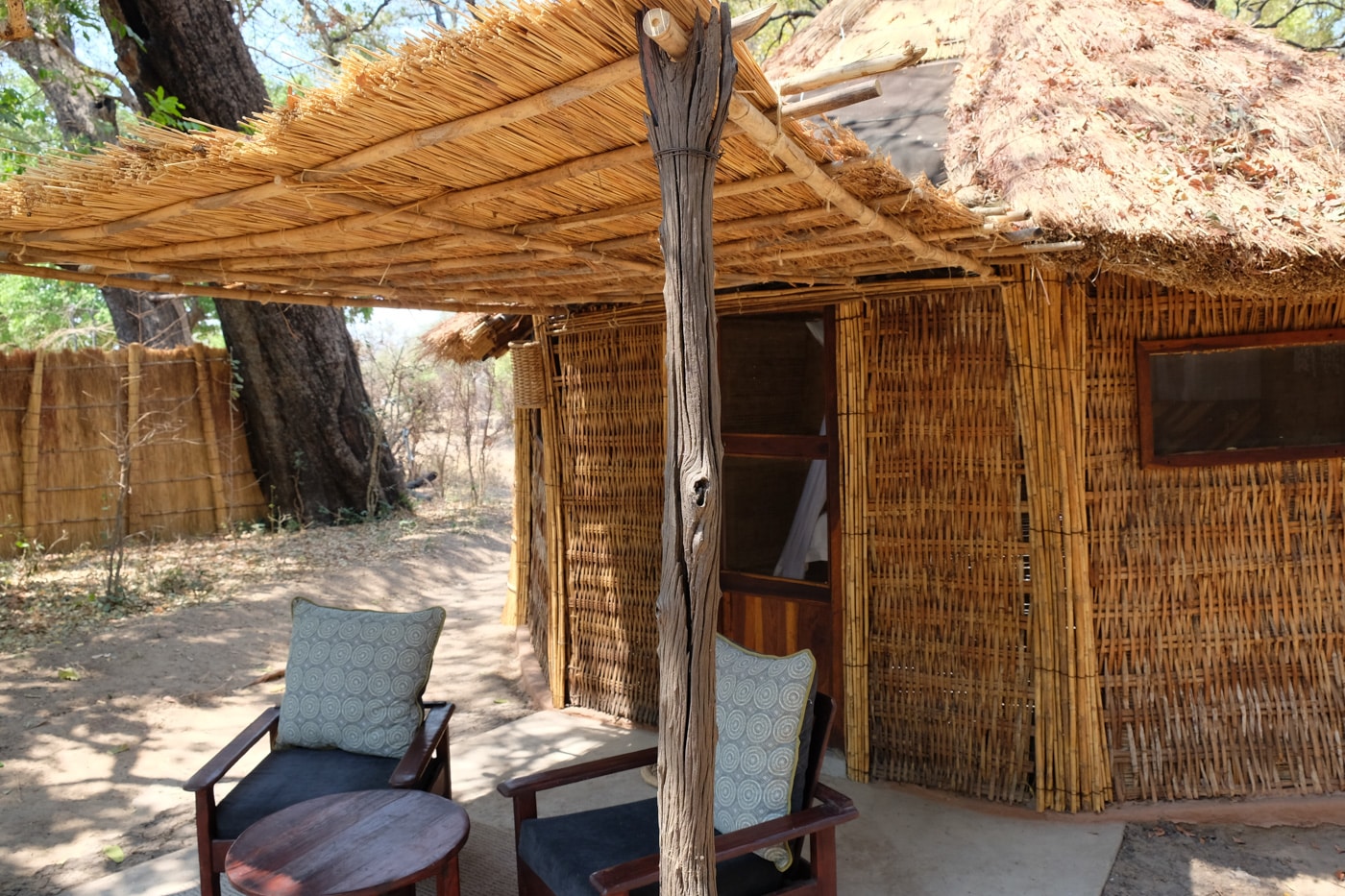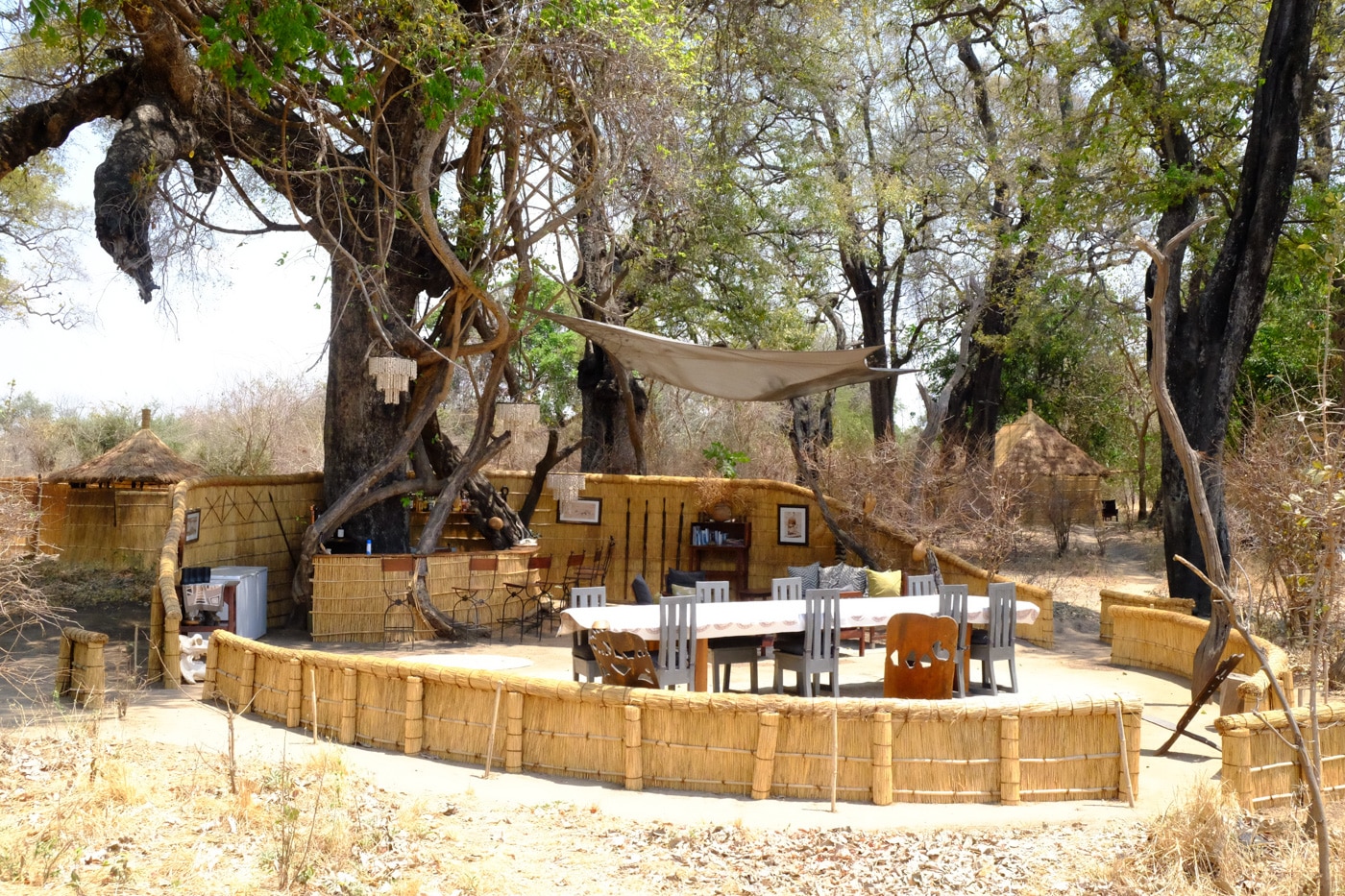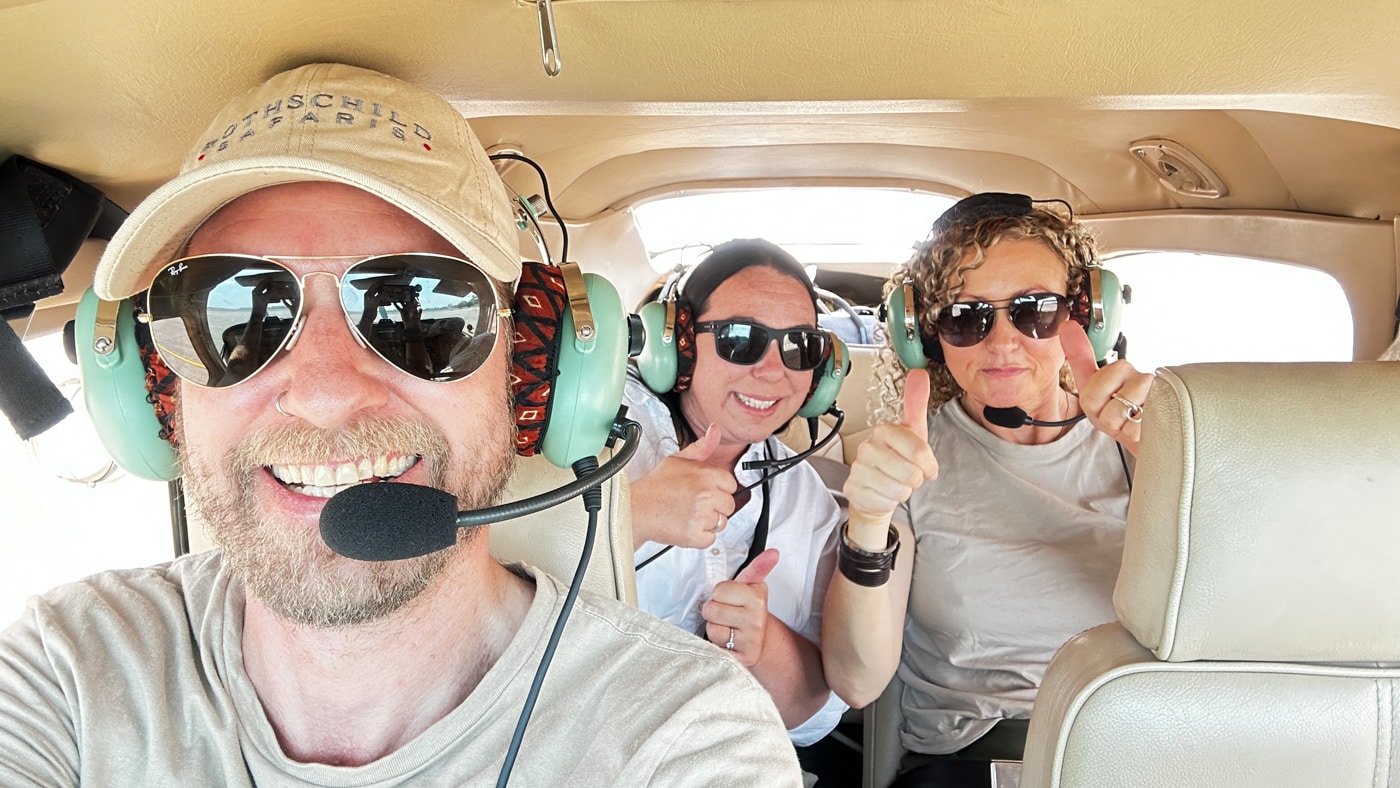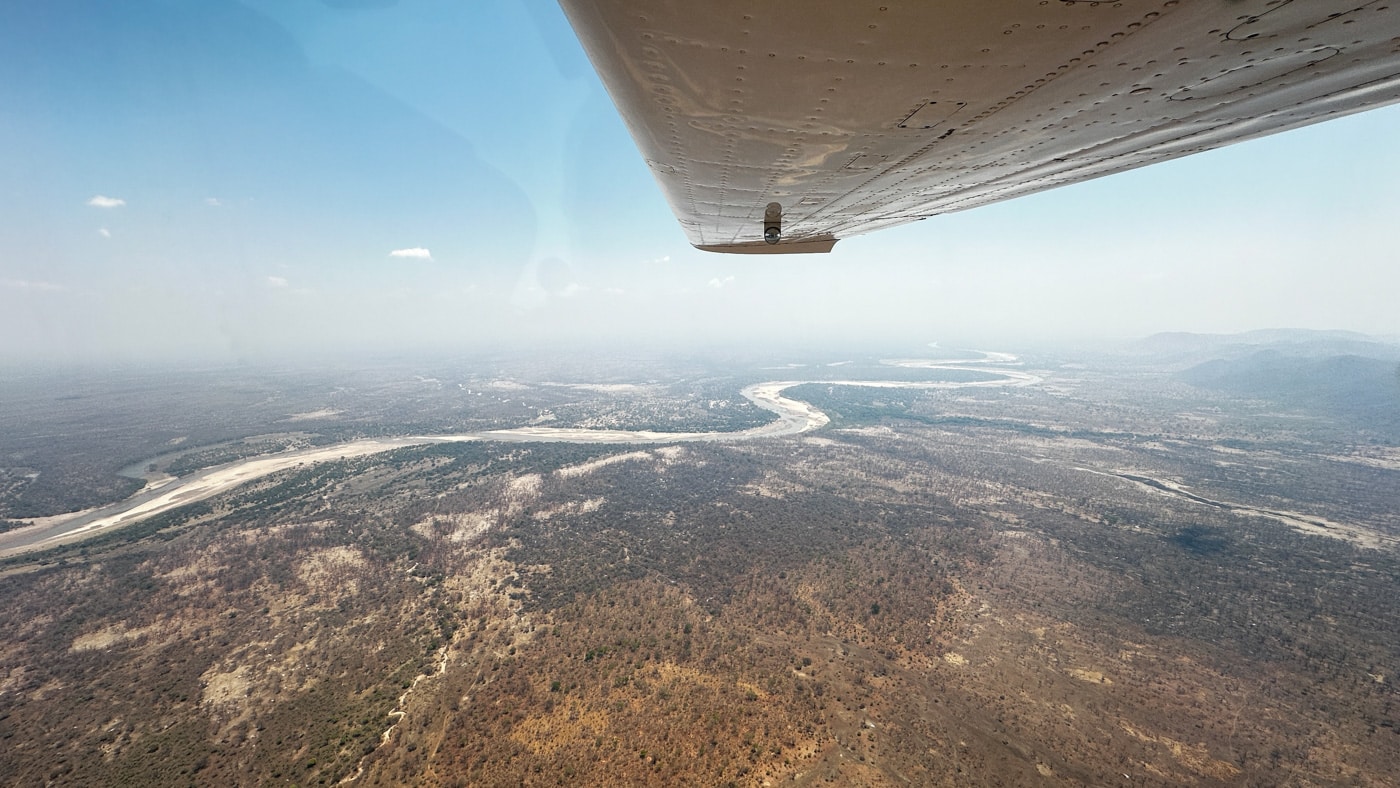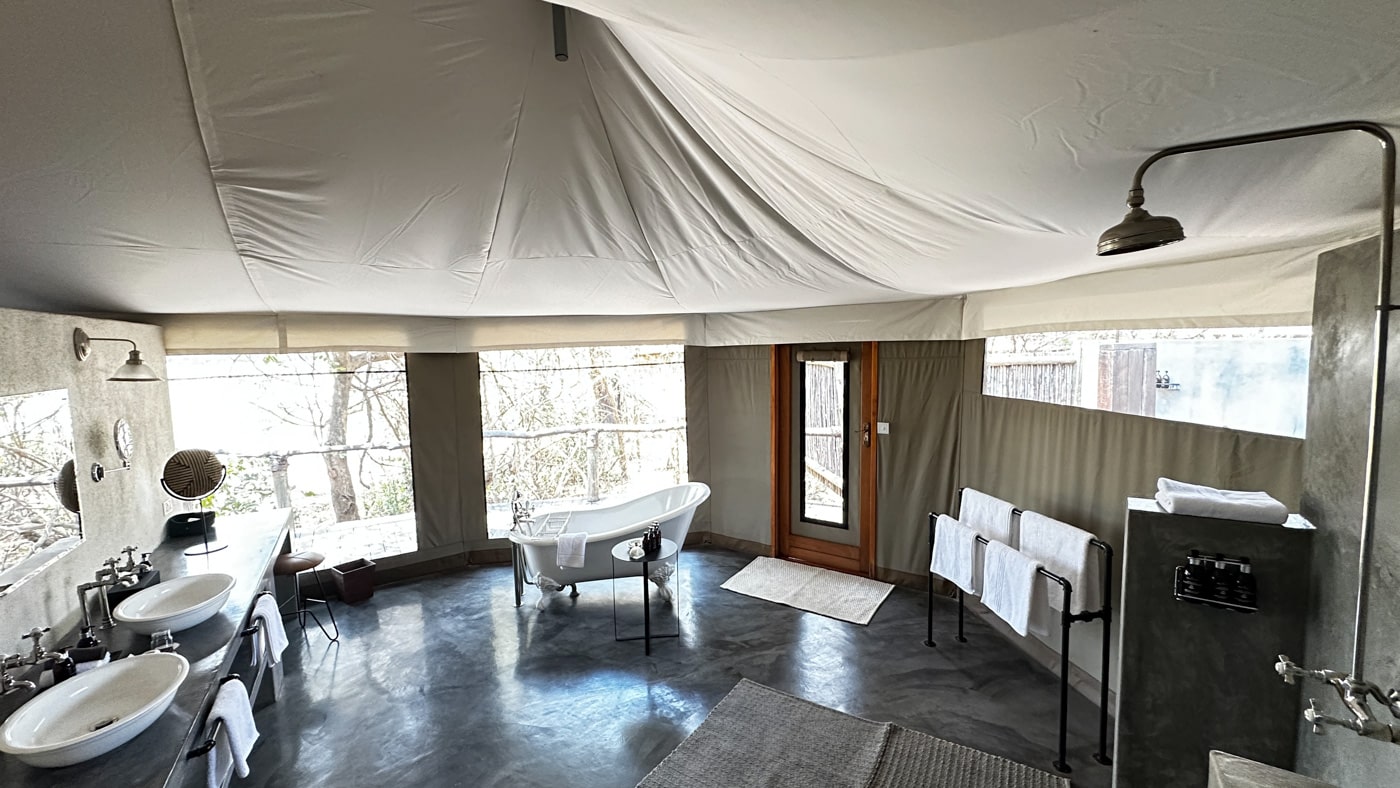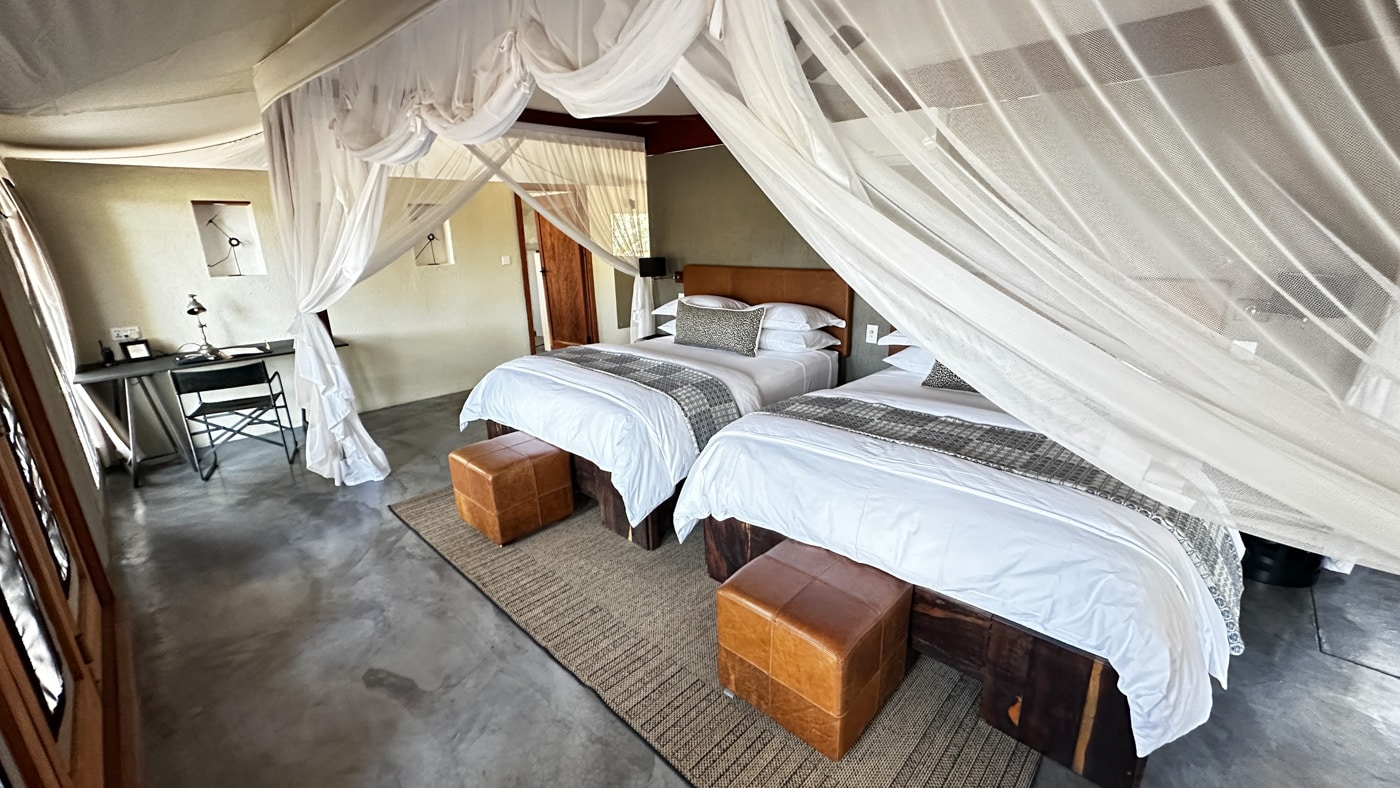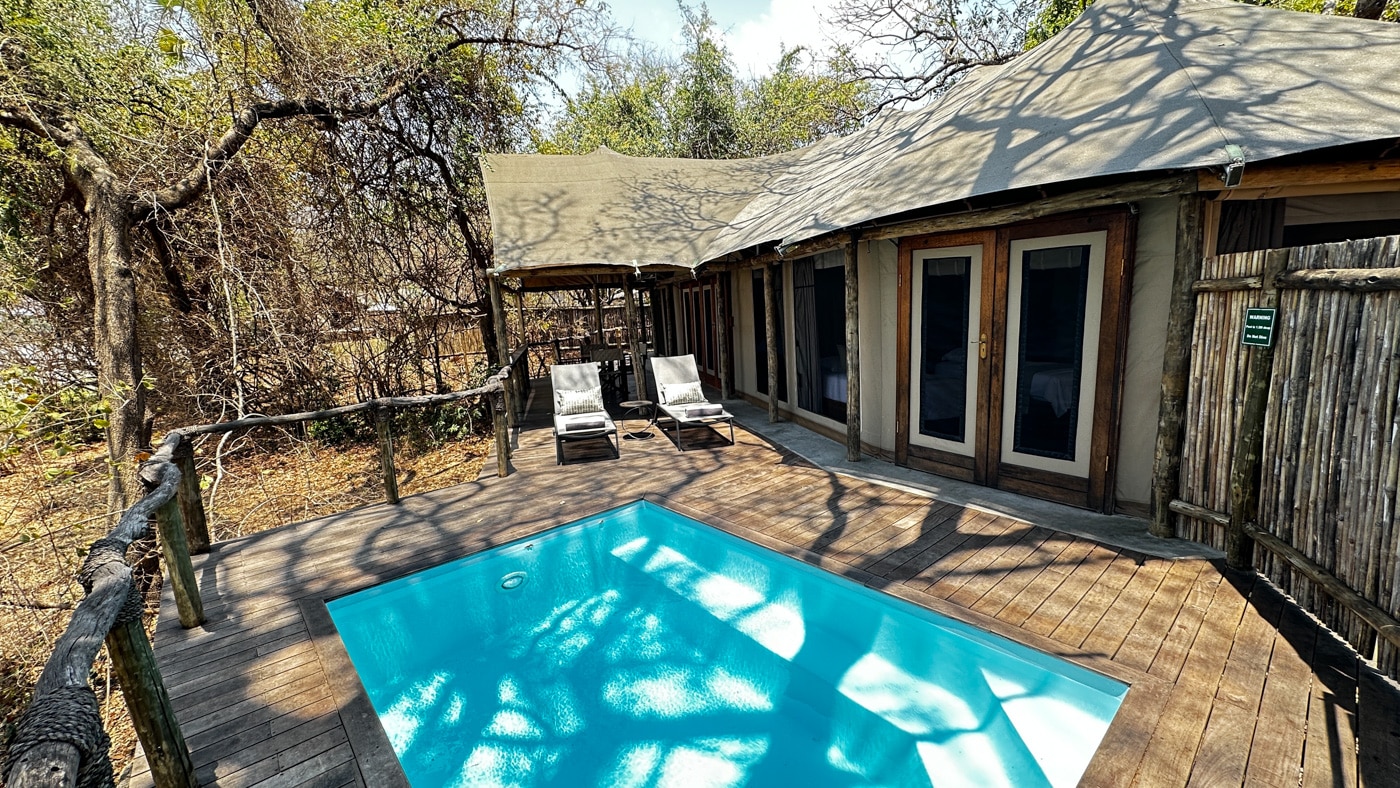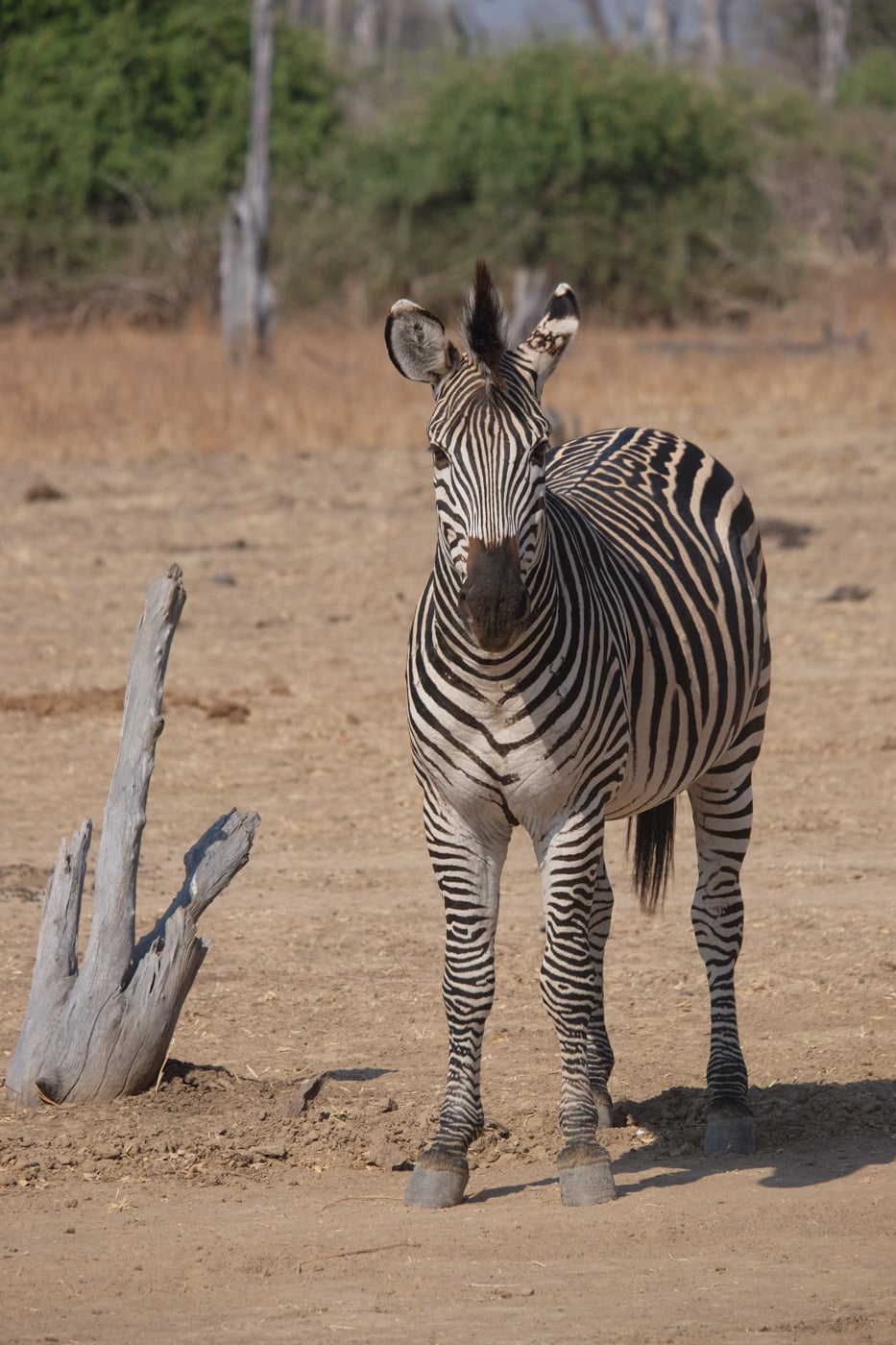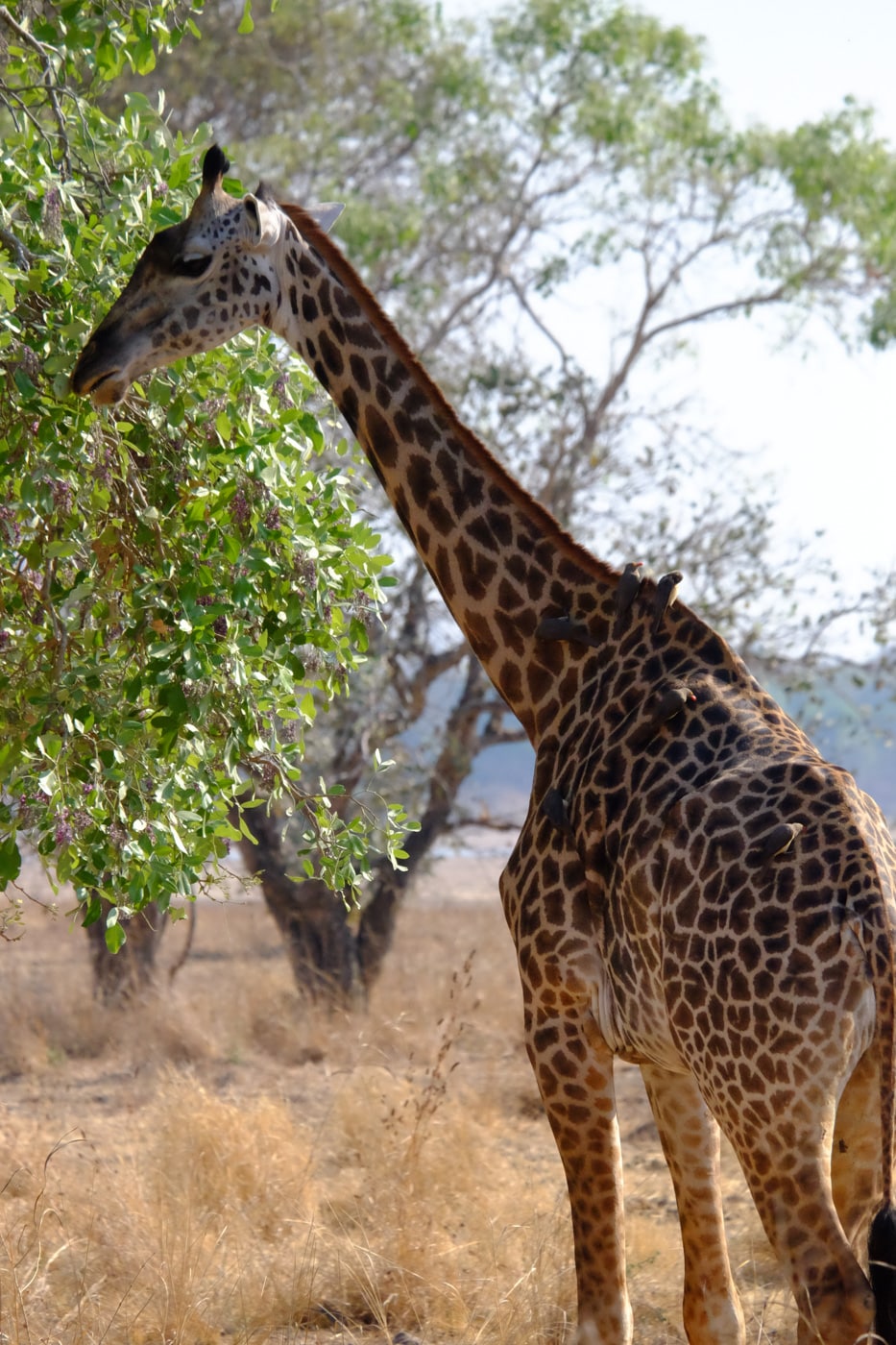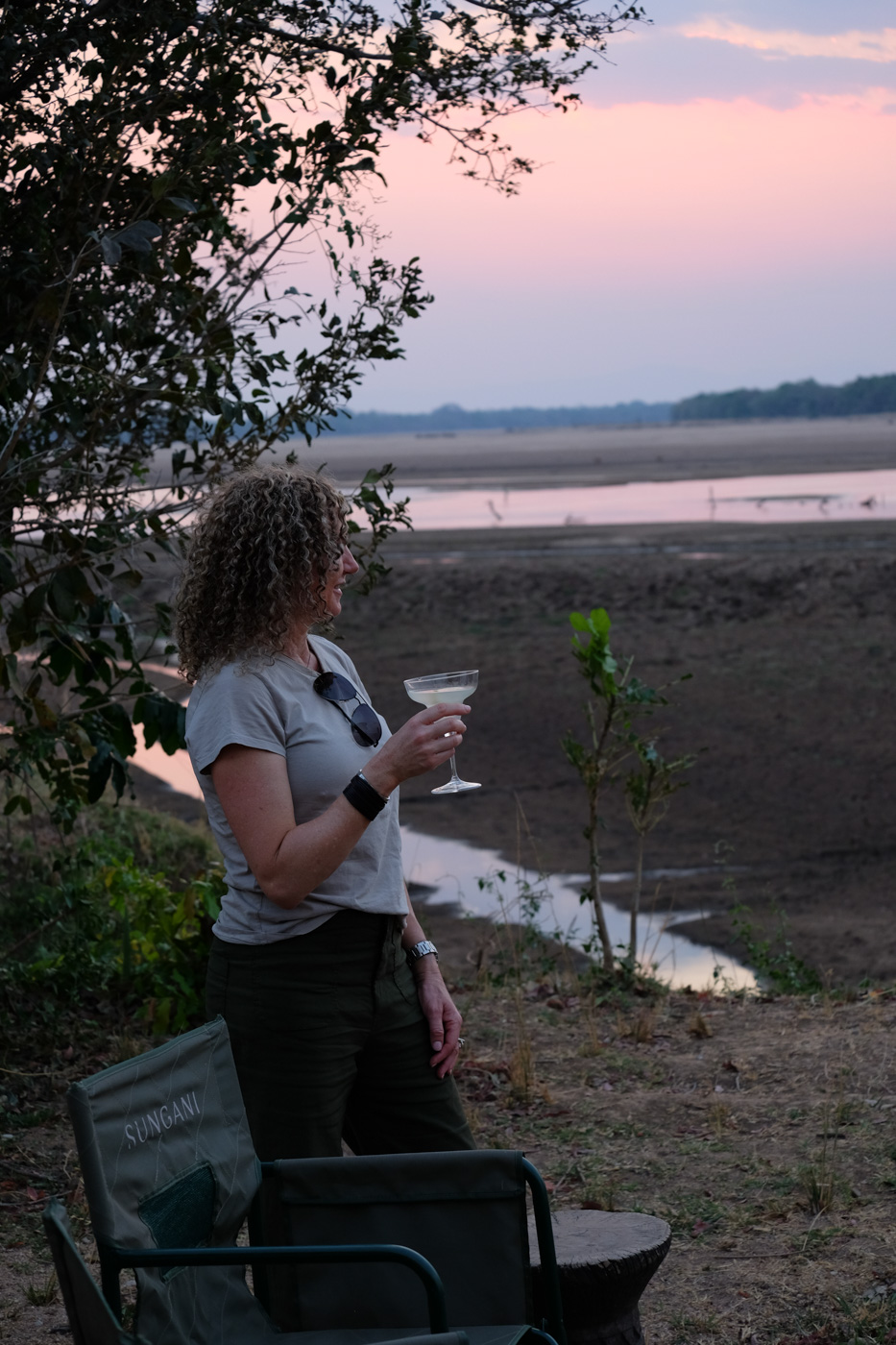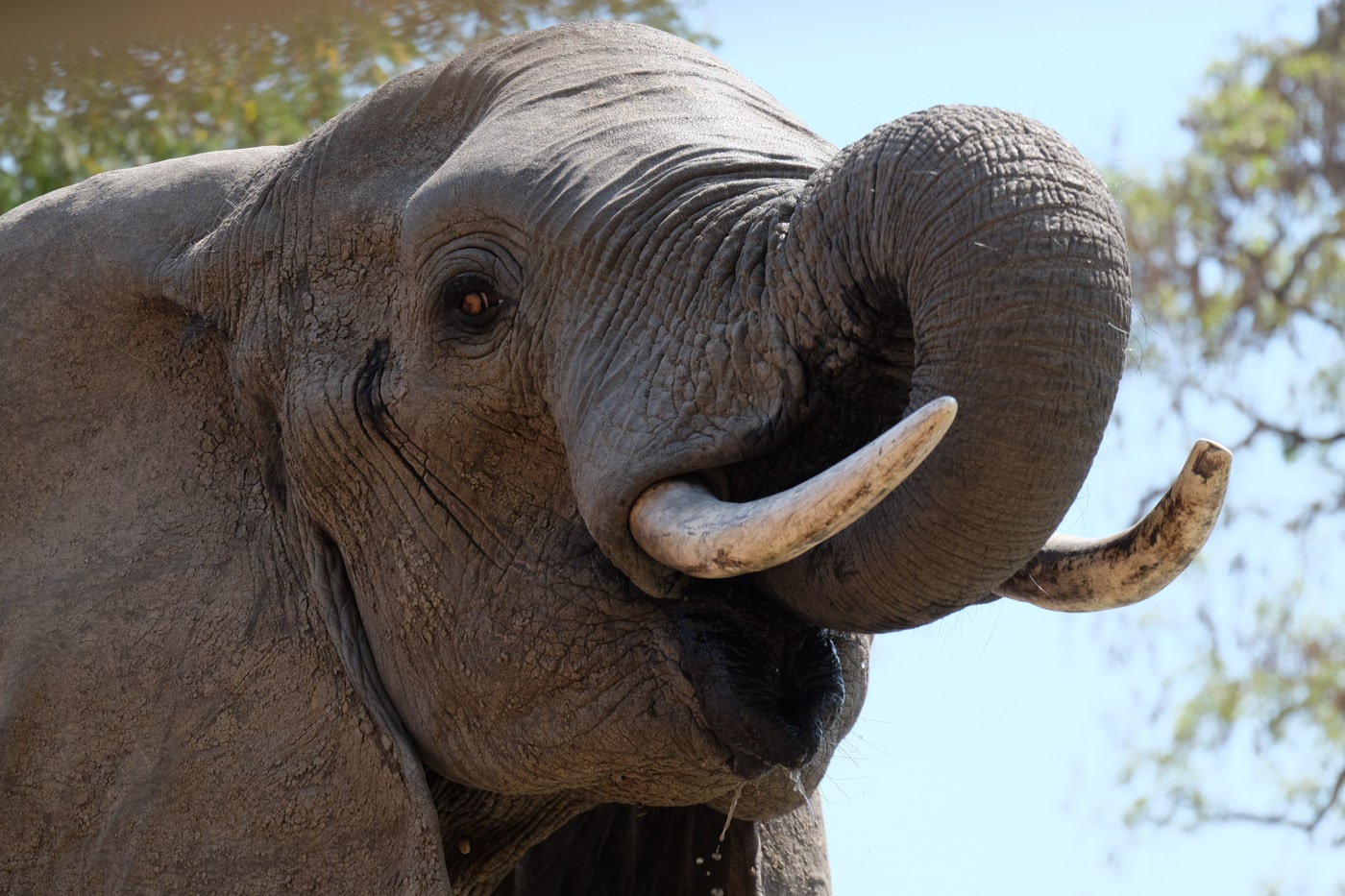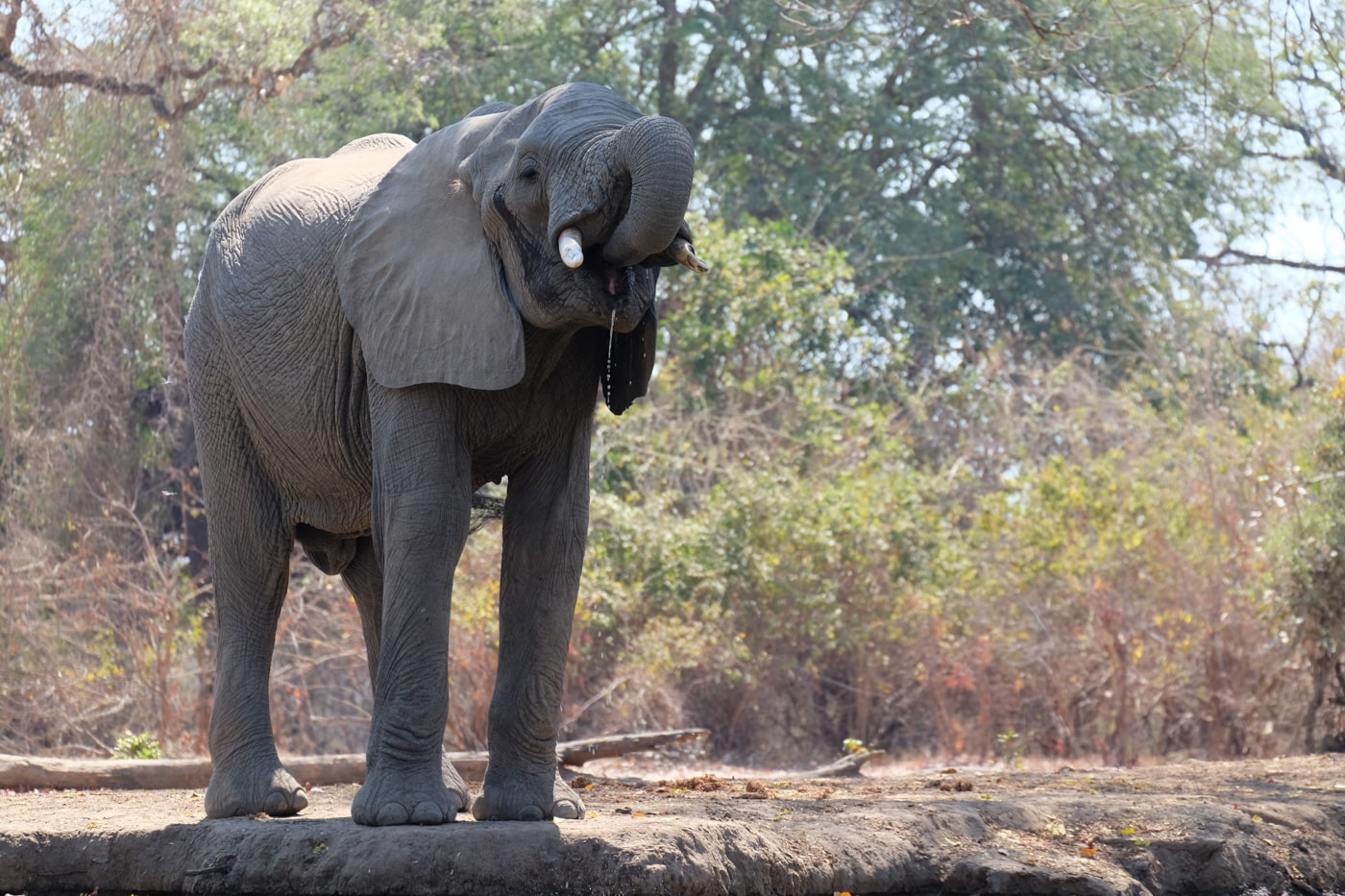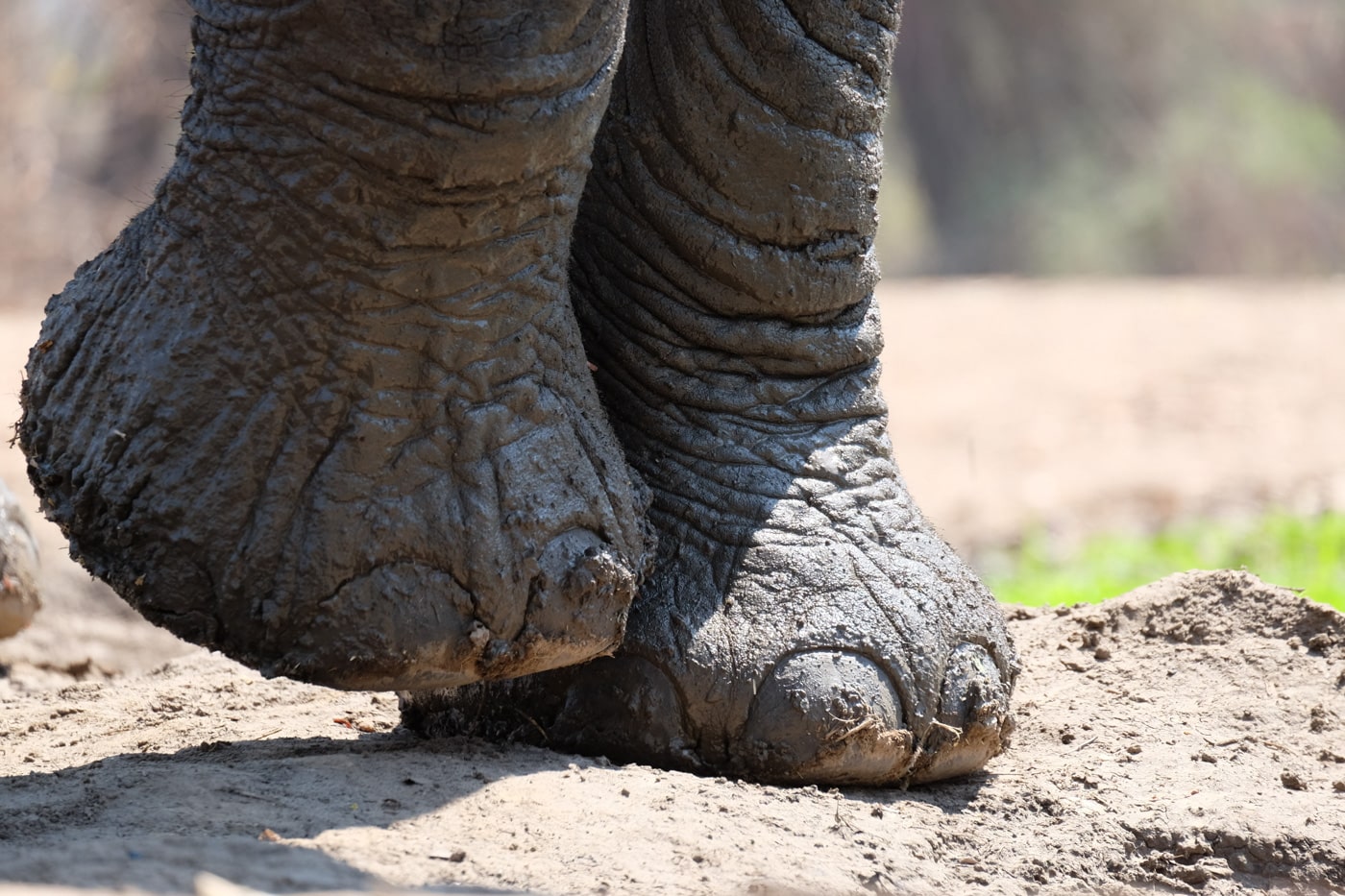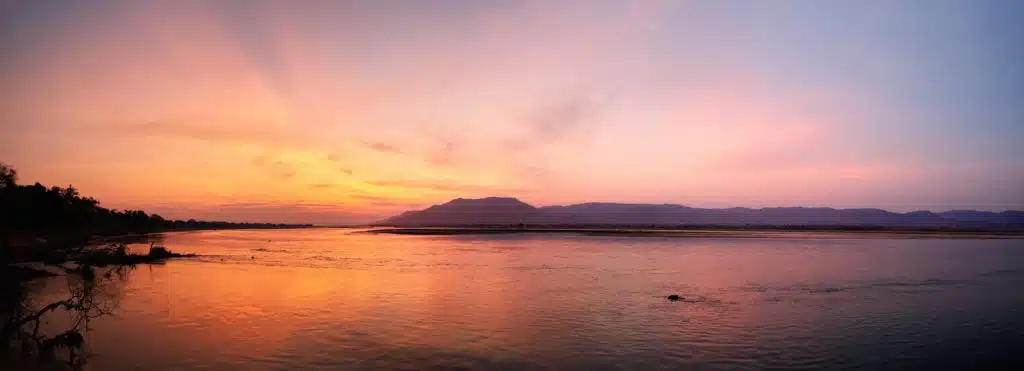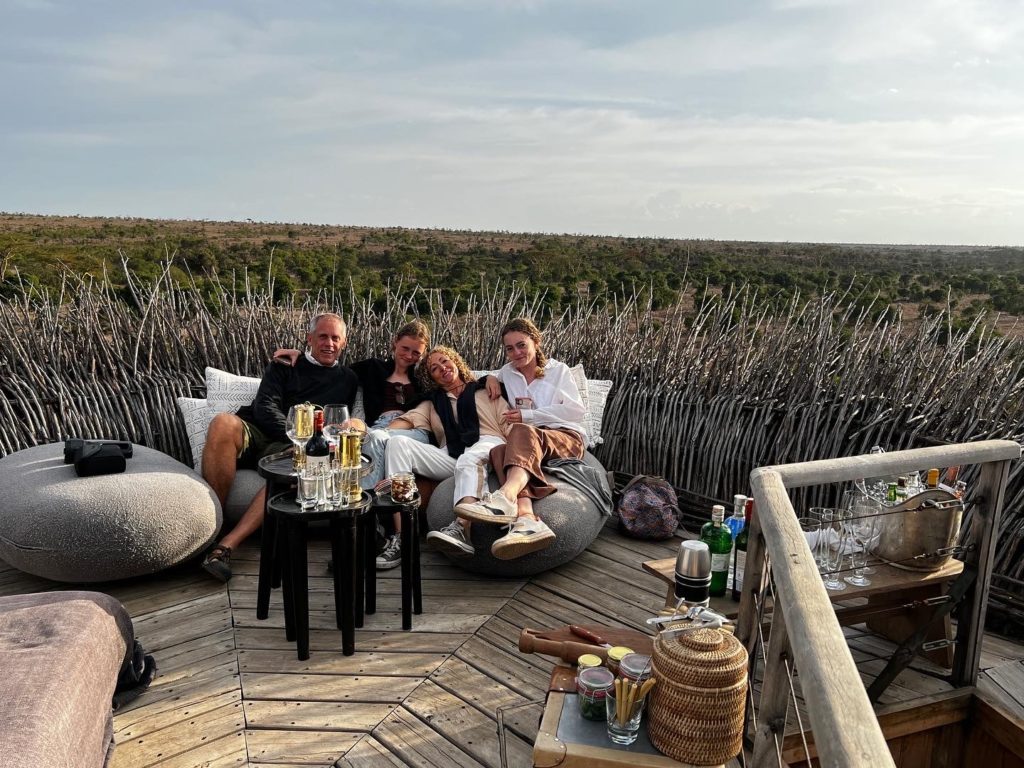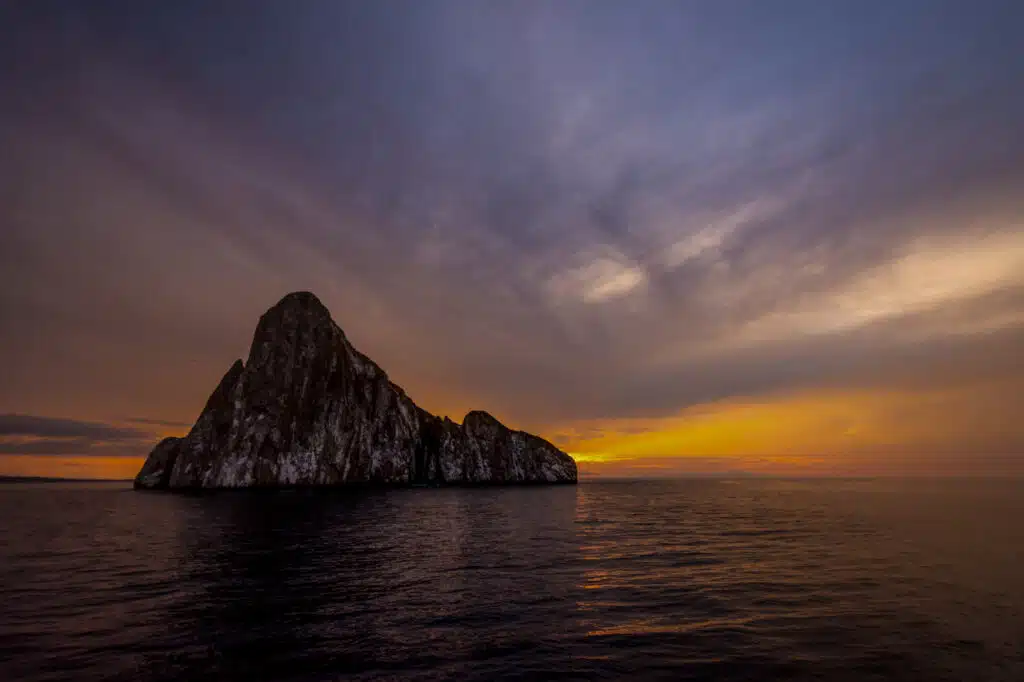ZAMBIA SAFARI
Luxury in the Wilderness
A Zambia safari is renowned for its sense of adventure; the drama of Victoria Falls, the thrill of a walking safari, and the aquatic explorations of the Zambezi.
But as Leora Rothschild and her fellow staff members and travelers, Angela Pretorius and Thomas Alexander discovered, there is so much more to one of Africa’s emerging premier safari destinations.
Arriving at Zambia’s Lusaka International Airport, the trio were warmly greeted by ground staff, immediately ready to unburden them of their baggage and whisk them away in air-conditioned comfort, welcome respite from the heat of the dry season.
Latitude 15 would serve as the first port of call. While many city hotels offer unbridled luxury, the smaller boutique Latitude 15 welcomed the team to Africa in a fusion of contemporary comfort and traditional culture.
First impressions of a country after the arduous duration of a long-haul flight can pass in a blur, the sterility of a large hotel creating a hermetic separation from the destination. Conversely, Latitude 15 plunges one immediately into a sense of arrival. Traditional carvings and artworks adorn the walls, lush gardens create a natural tranquility, and decor evokes the impression of colonial-era smoking lounges and antique charm, despite the venue’s superbly-modern facilities.
Refreshed from their flight, they spent their first evening with Isaac Given Njobvu, a Zambian native and the student Leora has proudly sponsored through medical college, though never met in person. Now in his final year, Isaac’s humble gratitude was palpable, his aspirations for a future in medicine inspirational.
His deep appreciation for an otherwise unattainable qualification has encouraged him to pay forward, aspiring to seek employment with non-profit organizations that benefit local communities and orphans, even hoping in the near future to sponsor a young student of his own in seeking education for a brighter future.
After a restorative sleep, the journey continued swiftly, the three travelers returning to the airport for a domestic transfer to Mfuwe, the main township and domestic airport of the South Luangwa.
Anticipation swelled as the 28-seat aircraft descended, the Luangwa River weaving into the distance and the bush reaching up to greet them.
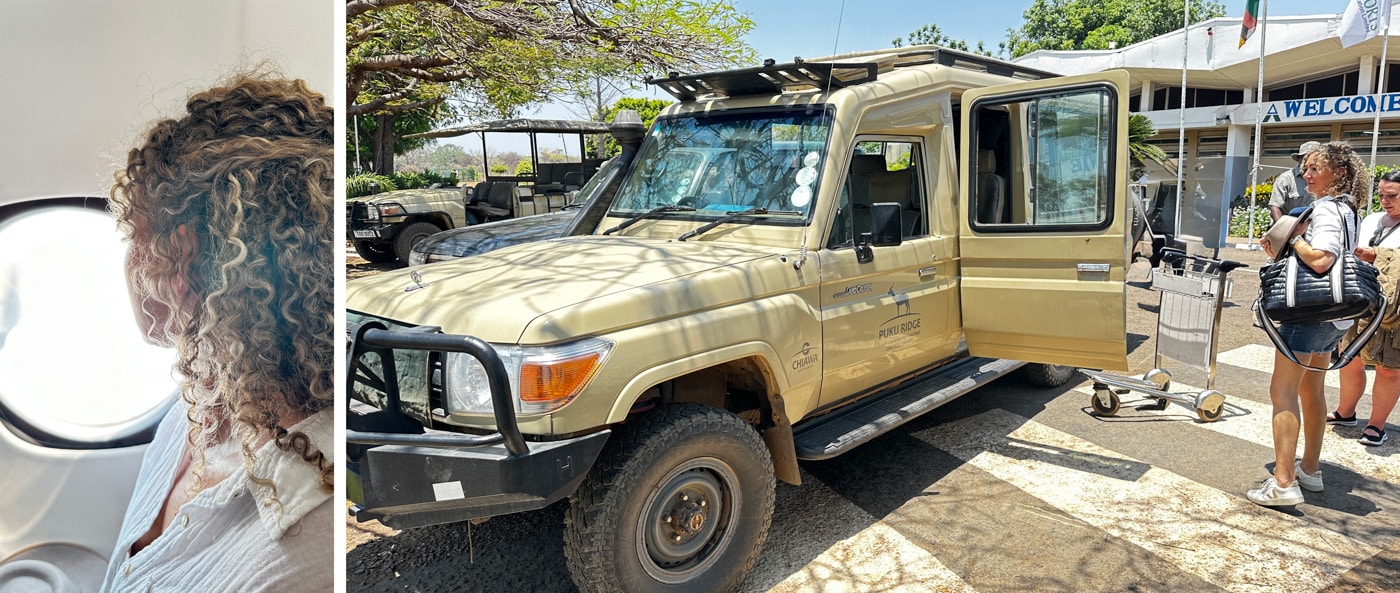
At the rustic yet efficient airport, their driver and guide for the next 24 hours, Andrew, was awaiting their arrival, ready with strong arms to transport luggage and a wonderfully refreshing ice-cold carafe of water.
With a lifetime of local knowledge and 17 years guiding experience, he divulged a wealth of fascinating facts, from the geography of the region to an insight into village life and the wildlife to be found here. A warm welcome of song, chilled ginger refresher and cooling face cloth greeted the party to Puku Ridge, a premier property of the Luangwa portfolio.
A sweeping staircase to the camp’s communal deck brought them immediately into the wilds of Africa, panoramic views of the neighboring flood plains revealing zebra, buffalo, giraffe and herds of the eponymous puku antelope. Here too awaited lodge director, Grant Cumings who has spent his life refining the fine art of bush hospitality and luxury safari camps.
Puku Ridge provides sublime yet understated luxury. Delightfully air-conditioned private tented villas drink in the same exquisite views, with an equally-expansive king-sized bed overlooking the plains and distant escarpment. Each villa provides a private plunge pool on the breakfast balcony, capacious bathroom facilities and rooftop star bed where one might spend the evening lulled to sleep by the sounds of nature under the heavenly canopy of stars.
An elegant lunch was served prior to the afternoon’s game drive. It is astounding that here, far from the nearest town, that every dietary requirement is impeccably catered to. From gluten-free to plant-based, head chef Jackson crafts unadulterated, uninhibited fine dining worthy of any contemporary restaurant kitchen.
The gastronomic delight was, however, overshadowed in anticipation of the afternoon’s explorations.
Escorted by Grant and the ever-eloquent Andrew, Leora, Angela and Thomas boarded a state-of-the-art game vehicle to venture into the wilderness. Almost immediately, they were surrounded by herds of antelope and zebra, nursing female elephant and their progeny watching on as they passed.
But a whisper on the two-way radio ushered them onwards: a leopard had been spotted.
Searching out the lone cat, they found her cowering in the tall grass, her kill expertly deposited in the tall tree beneath which she lay.
Agape, they watched on as she rose and returned to her treetop dinner. But her fragile first steps revealed an injury. A heavy limp in her front paw was hampering her ascent. At this time of year, with antelope and zebra indulging in the freshly-fallen sweet flowers of the sausage tree, an elevated assault is a rewarding tactic; but it comes with its dangers. The limp likely resulted from a sprained ankle from this arboreal attack. Despite nursing the injury, the group watched on as the beautiful feline made her way upwards, feasting in the safety of the branches.
Winding through forests and creeks, the party emerged on a dry riverbed, where sundowners had been prepared for their arrival. Gin and tonic in hand, the sun slowly setting and the distant grumble of wallowing hippos providing African ambience, Leora and her companions toasted the success of her first Zambian game drive in almost 20 years.
The following morning, a rapid departure ensued. The tantalizingly-brief overnight stay was over and the next destination of Leora’s Zambia safari awaited: Lion Camp.
Hosts Vicki and Wayne pride themselves on establishing the property on the site of one of Luangwa’s first walking safari camps, founded by legendary Zambia safari pioneer, Norman Carr. Indeed, the original buildings have been wonderfully maintained, testament to the tree camp’s heredity.
Living up to its name, a tentative lion sighting announced their approach to the camp. In the heat of the day, the small pride languished in the shade of a thornbush, close to and yet obscured from their onlookers. The greeting at camp, however, was anything but obscured. Charlie, one of two resident, though entirely wild, elephant stood at the entrance to Lion Camp, a breathtaking welcome party as if on cue.
Though forming a connection with Wayne, the bull remains cautious of visitors, who are instructed to allow him space and the utmost respect.
Weaving through the forested riverbanks, raised walkways provide complete safety from nature, meandering through the bush to the ten thatched en-suite rooms. Emanating rustic chic, each villa lies in its own secluded waterfront glade, where saddle-billed storks, zebra and antelope come to drink from the perennial water source.
At lunch, Leora and her companions were joined by resident guide Innocent. Growing up in the region, Innocent has developed a profound depth of understanding of Luangwa and its residents, easily identifying individuals, knowing both their lineage and their story.
Lion Camp gained its name for obvious reasons, and this was justified on the evening’s game drive. Two rotund males were found, panting for breath under the weight of a recent meal, languishing in a dried riverbed.
Further along the bank, four of their seven females were likewise lethargic, but as they watched on, one rose, walked forward and passed within a meter of the vehicle.
Though not habituated in any sense, the pride of nine, recently becoming 14 with the addition of five newborn cubs, have become familiar with game vehicles, particularly for having been featured in a BBC wildlife documentary.
Leaving the engorged felines to digest, the trio was transported around the network of interweaving trails in search of wildlife, senses piqued for any sights or sounds that might indicate what lay in the landscape. As the sun crept ever-closer to the horizon, Innocent searched for an appropriate sundowner destination, finding it on a riverine beach overlooking the Luangwa. Teeming with hippo and peppered with Nile crocodiles, there would be no refreshing dipping of the toes in these waters, but the awe-inspiring setting was more than worthy of day two’s conclusion.
The third destination of the Zambia safari would be Kaingo Camp. The rustic charm of this delightful property exudes absolute authenticity, instilled by camp matriarch and wonderful hostess, Callie.
Kaingo – and its sister camp of Mwamba, that they were to visit the following day – is one of South Luangwa’s most exposed camps, with monkeys playing amongst the treetops, bushbuck and puku rummaging through the leaf litter and, by night, elephant and hippo wandering through camp, night patrols and escorts ensuring that everyone remains tucked away safely.
Perhaps a daunting prospect, there is little danger in camp, and the highly attentive staff accompany guests through the wooded grounds, preventing surprise four-legged visitors being stumbled across in the evening’s waning light.
There are several benefits of this northerly region of the park. Far from the main gate, traffic is greatly reduced, day visitors unlikely to travel so far on self-drive and external game drives.
The following day, Leora, Angela and Thomas transferred to Mwamba Camp, the second of Shenton Safaris’ properties in the region. Mwamba is not a luxury camp. Well-appointed and with superb staff, it is adequate, though lacking the modernity and opulence of other destinations. Where its wealth lies is in its connectivity to nature. During the evening, elephant investigate the grounds, zebra graze beyond the thatched walls, vervet monkeys leap amongst the branches and breakfast is occasionally interrupted by the approach of a passing elephant.
Over dinner that evening, a charming little vervet monkey was witnessed observing the guests. One of the guides noted that she had been spotted regularly, bearing the distinct signs of late-stage pregnancy. As dessert was fervently devoured, the guide ushered guests to the other side of the large tree that towers above the dining area and, sure enough, there sat the little vervet, high in a secure nook, cradling her newborn, no larger than four inches (10cm) in height and protectively cradled in its mother’s arms, umbilical still attached. What a magical sight to behold.
Though very distinctly rustic, its traditional grass rooms unable to parallel the decadence of more luxurious properties, what Mwamba offers is a seamless connection to the natural world. Rather than a daily excursion, game drives are merely a mobile extension of all that is experienced in camp. This is reiterated in the camp’s nearby elephant hide. Overlooking one of the few remaining lasting waterholes of the locale, one is transfixed by the comings and goings of local wildlife; puku sip at the water’s edge, one tentative eye remaining on the basking crocodile, lilac-breasted rollers swoop and dive in a dazzling explosion of color, and wandering elephant herds emerge from a cloud of dust to slake their thirst.
Waving farewell to newfound friends, the frenetic Zambia safari itinerary continued the following morning after breakfast, the group’s guide returning them to Mfuwe airport for the transfer to Sungani – the last destination and the most southerly camp in the South Luangwa.
The four-seater Cessna awaited on the tarmac and, with baggage carefully stowed, the plane rose into the air for the 40-minute transfer.
On arrival, they were greeted by Michael, the youngest son of the Davy family, and head guide – amongst his many responsibilities – of the private reserve. Sungani was established in 2019 by the Davys in an area of high poaching impact. Since that time, illegal activity has been almost entirely eradicated, and the nature that had once refrained from visiting is returning in abundance.
Conservation is integral to the camp’s ethos. Indeed, Sungani roughly translates as ‘custodian’ or ‘keeper’ in the region’s Chichewa dialect. What is abundantly clear is the entire family’s involvement in and passion for this project. Father Paul is very much the hands-on groundsman, continually patrolling the property to ensure its upkeep and safety for its wild residents; mother Lynne has an acute sense of style and design, reflected in every aspect of the Sungani experience, from tableware to furnishings; and Michael’s lifelong passion for conservation has manifested in his expert guiding skills and palpable, enthusiastic passion for every creature that resides here.
After taking the afternoon to orientate and reinvigorate weary limbs at Sungani’s gym, Leora, Angela and Thomas joined Michael on a game drive through the reserve, tracing the perimeter of the lake on which the property sits before plunging into the bush. The first order of the drive was to check the daily headlines at the Newspaper – the name given to a soft-sand track that is highly trafficked by wildlife and offering insight into what might be observed in the vicinity.
Michael’s keen eyesight and boundless knowledge identified hyena, leopard and elephant tracks interspersed with the footprints of numerous antelope species, each recognised by its peculiarities and shared with the group.
Michael himself admits that nature here isn’t yet as abundant as in other Zambia safari regions, though its resurgence will soon negate that, and his fascinating banter regaling his guests with animal facts and countless anecdotes more than compensates for the marginally-less sightings than elsewhere.
Despite his admissions, wildlife was plentiful, giraffe, waterbuck and elephant casually grazing on the lush vegetation in this area that has, at least for now, fewer predators than elsewhere.
The evening’s drive took them to Kulandila – the sister bush camp of Sungani – a name meaning to receive or welcome in Chichewa. Though no less luxurious than its more grandiose sibling, Kundalia’s focus is more upon a bush camp influence than established safari lodge and it is embraced by the riverine forest on the banks of the Luangwa.
Sunset by the boma was filled with Michael’s captivating tales of the property’s establishment and its highly encouraging rebound from an area that was, until recently, an unpoliced haven for poachers. As if broadcast on the bush telegraph, nature has flooded back into the reserve, and it has become a protected sanctuary for the region.
The night drive back to Sungani illuminated not only the circle of forest visible in the pool cast by the spotlight, but also the acute talents of both Michael and his spotter. Many game drives take in the larger creatures of the night, but on this evening their attention would be drawn to civets and genets, an elusive honey badger and even a small chameleon perched on a branch, almost invisible with its changeable camouflage and challenging to spot even when pointed out.
A sublime morning dawned the following day, the lake in front of the property bathed in crimson light, frogs chirping and hippo rumbling, instilling in the threesome a newfound mantra: ‘take me back to Sungani’.
After a light breakfast, the day’s drive made its way to the first of two hides to be visited during the day. Sunk below ground level into the surrounds of a small waterhole, Sungani’s elephant hide places guests at eye level to the water and, with fresh coffee and snacks served by Michael, they watched in awe as a herd of elephant emerged to drink mere feet away from her secluded vantage point, their log-like feet passing close enough to touch. For 30 minutes, her breath was taken, utterly captivated by this rare close encounter with the behemoths of the bush.
Tearing themselves away as the elephants departed, the drive continued onwards, finding a wonderful brunch awaiting under the shaded canopy of a large tree. On the fire, oatmeal bubbled and delectable cinnamon rolls baked, wrapped in foil, and a wonderful buffet spread provided restaurant-worthy cuisine in the heart of the bush.
Finding their way to the banks of the Luangwa, the next stop was the carmine hide. Michael had previously worked with National Geographic cameramen on a small hide from which to capture the radiant carmine bee-eaters.
Scaling the structure up to seat four, he has created a hide that is both comfortable and perfectly positioned to view these spectacular birds as they cling to the river’s sandbanks from which they excavate their nests. Taking flight in synchronicity before returning to their precarious perches, the bee-eaters are as captivating as they are colorful, and countless minutes passed as they watched the birds’ activity.
Their final day in the South Luangwa provided an incredible send-off for the next leg of their Zambia safari. Enjoying a gourmet breakfast with the family, they were alerted to an uninvited guest: Walkway Breaker. This large resident bull elephant has a tendency to create his own passage to the water, despite convenient bridges being erected for him, his almost habitual destruction of anything in his path giving rise to his comical and endearing moniker.
Perhaps lured by the smells of fresh coffee and frying pancakes emanating from the open-air kitchen, Walkway Breaker made his appearance, walking within a few meters of onlookers and, uncharacteristically, walking along his designated route to avoid the timber boardwalks. However, not to forego his reputation, he proceeded towards three lush saplings that had been lovingly planted and raised by Michael. As if on cue, he then stripped them of their foliage and, as a glistening tear emerged in Michael’s eye, he admitted that, though Sungani has spared no expense in its exquisite establishment, nature will always remind them who the true locals of this beautiful land are.
Departure was tinged with regret and the wish of just one more day at this incredible camp, but time was ticking and, with a fond farewell to staff and family, Leora, Angela and Thomas returned to the airport, boarding a plane that would whisk them away to the next chapter of her Zambian adventure: the Lower Zambezi.




